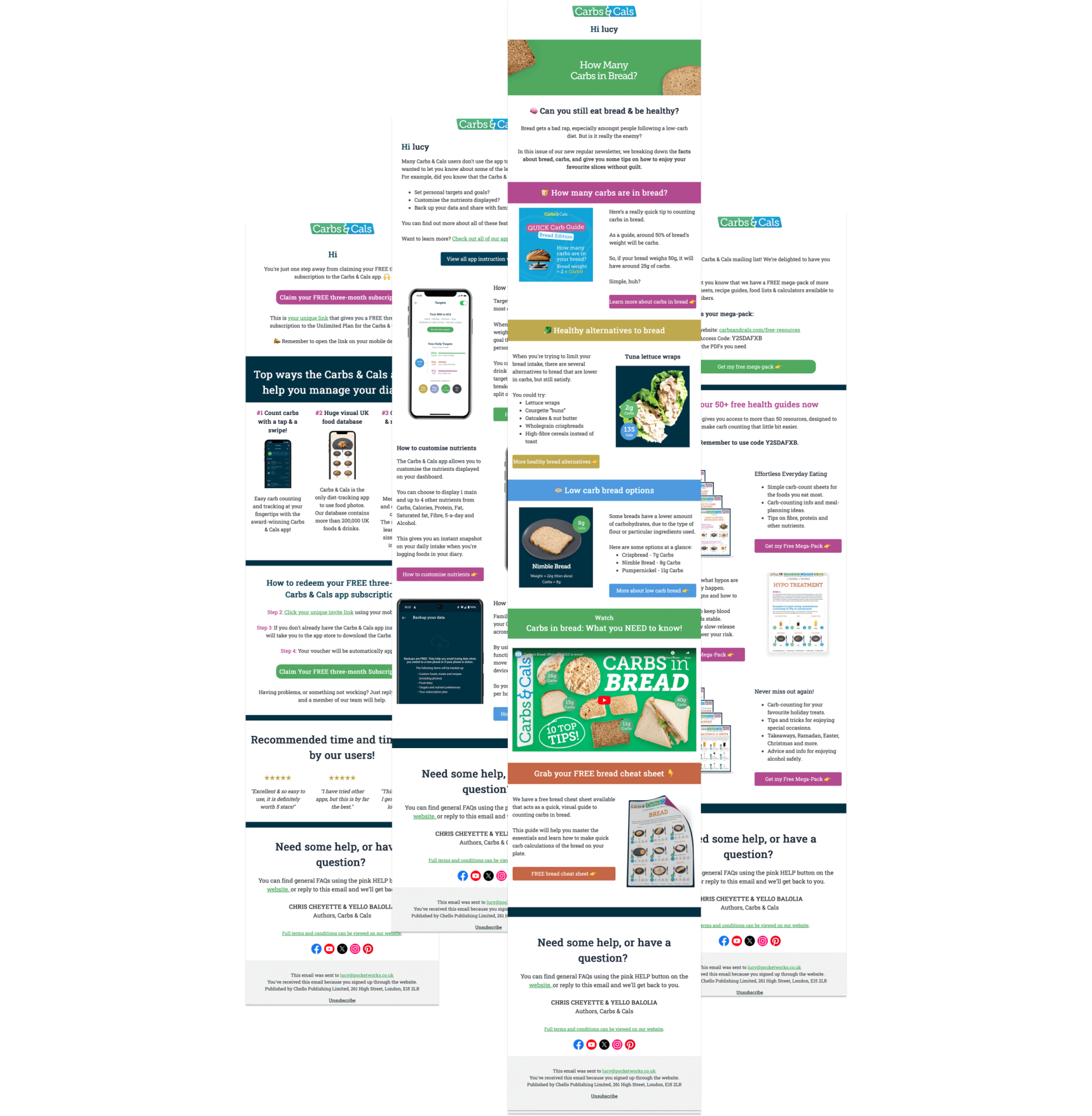Enjoying a drink now and then can be part of a balanced lifestyle. But if you’re counting carbs, whether for diabetes, weight loss, or general health, alcohol can be a hidden source of carbohydrates that many people overlook.
From cider and sweet wines to creamy liqueurs and cocktails, alcoholic drinks vary widely in their carb content. And unlike packaged food, most drinks don’t come with nutrition labels, making it hard to track their impact on your blood sugar.
In this article, we break down the carbohydrate content of common alcoholic drinks, explain how alcohol affects blood glucose, explore some low carb alcohol options, and share practical tips for drinking safely and smartly, especially if you’re living with diabetes.
How alcohol affects blood sugar
Alcohol has a complex relationship with blood glucose, particularly for people with diabetes.
How alcohol can affect blood sugar:
- Initially raises blood sugar if the drink contains carbs (e.g. beer, cider, sugary mixers, sweet wines).
- Later, lowers blood sugar by affecting the liver’s ability to release glucose, increasing the risk of hypos (low blood sugar) several hours after drinking.
- Masks hypo symptoms. Alcohol consumption can make it harder to recognise and treat a hypo if you are a diabetic.
If you’re drinking alcohol whilst counting carbs:
✅ Never drink on an empty stomach.
✅ Monitor blood sugar more often, especially before bed and overnight.
✅ Carry hypo treatment (like glucose tablets or sweets).
✅ Speak to your diabetes team about safe alcohol guidelines.
Do not take insulin to cover alcohol consumption, unless your diabetes team has specifically advised you how to do this safely.
You may need to reduce insulin doses when drinking alcohol, and you should always discuss this with your healthcare professional or diabetes educator.
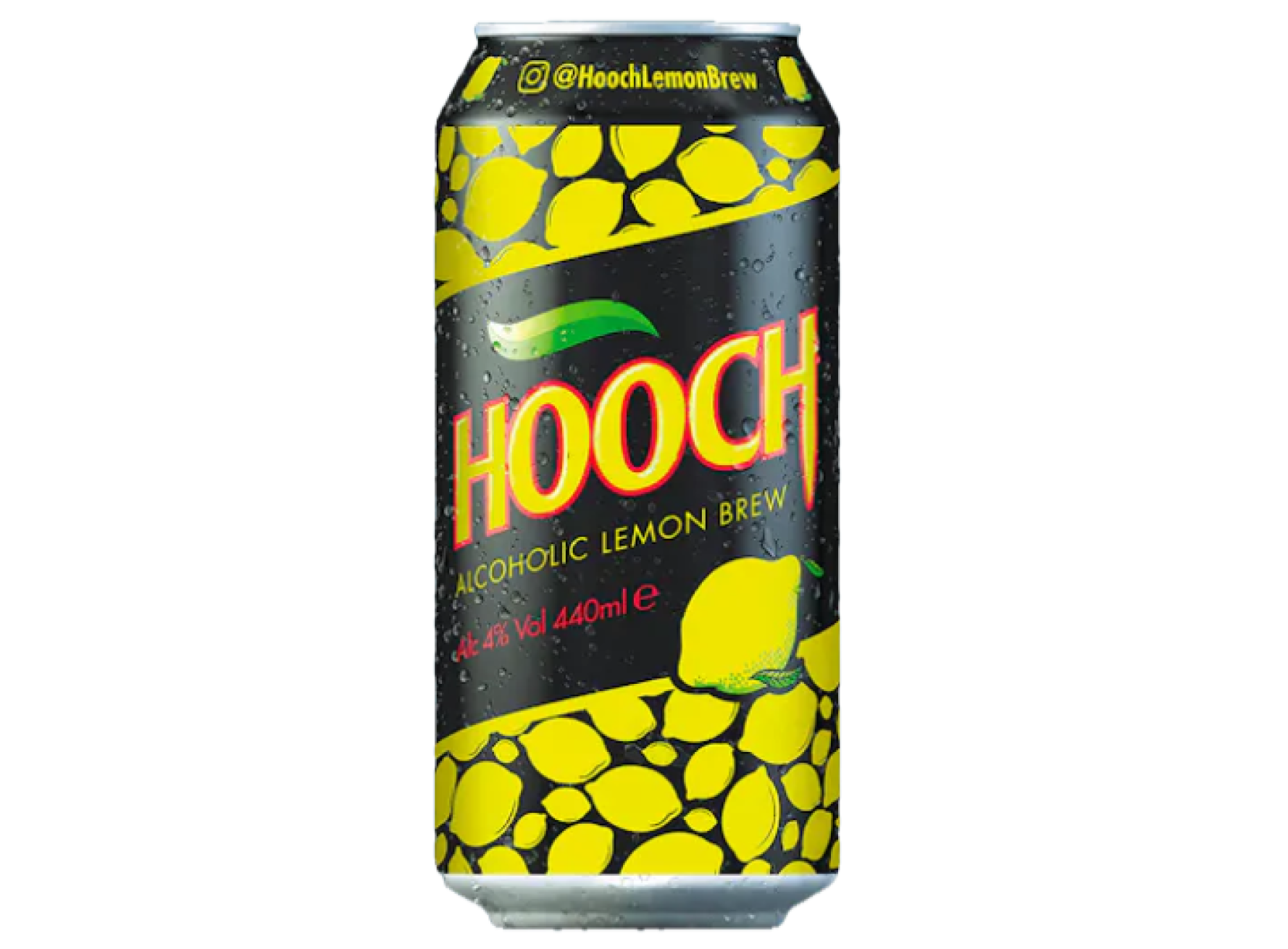
29g
Carbs
Hooch (lemon)
440ml can
Carbs = 29g / Cals = 220
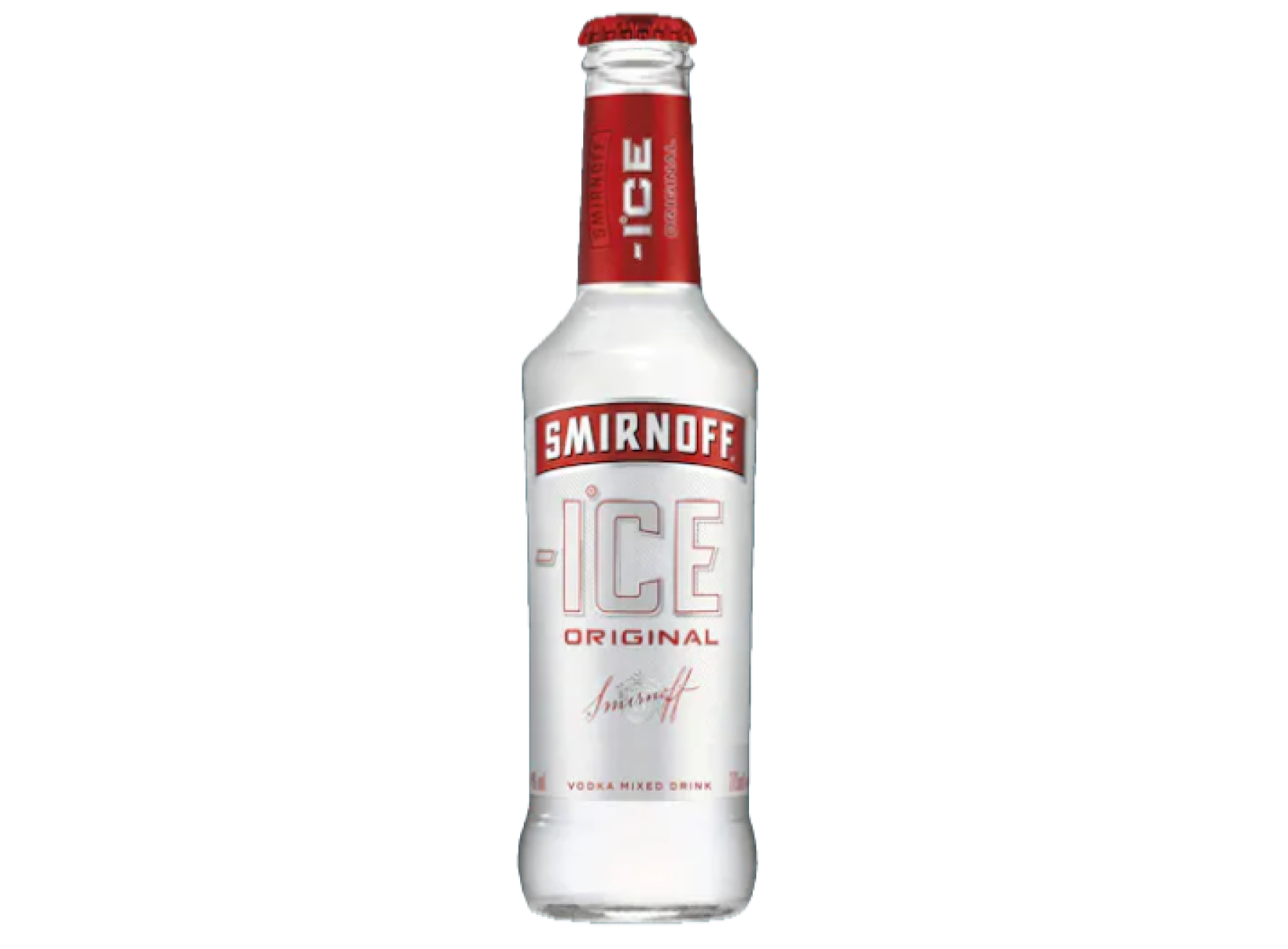
27g
Carbs
Smirnoff Ice
275ml bottle
Carbs = 27g / Cals = 179
Video
Carbs & Calories in alcohol (part one)
Carbs in alcohol: A guide to carbs in alcoholic drinks
Here’s a guide to the average carbohydrate content of some of the most popular UK alcoholic drinks:
Carbs in beer & lager
Top takeaway: Alcohol-free doesn’t mean carb-free – always check labels.
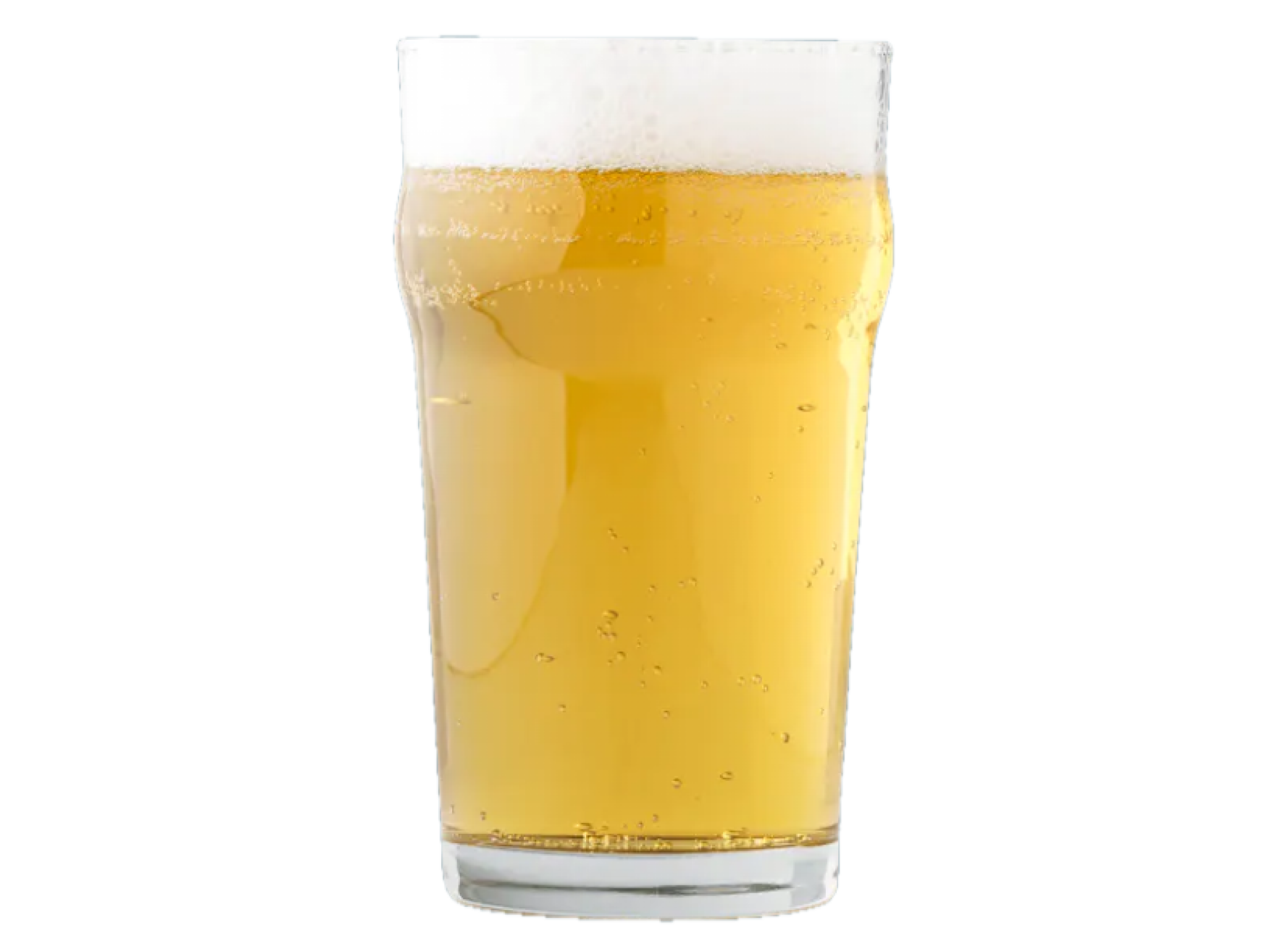
20g
Carbs
Lager (5%)
Pint
Carbs = 20g / Cals = 259
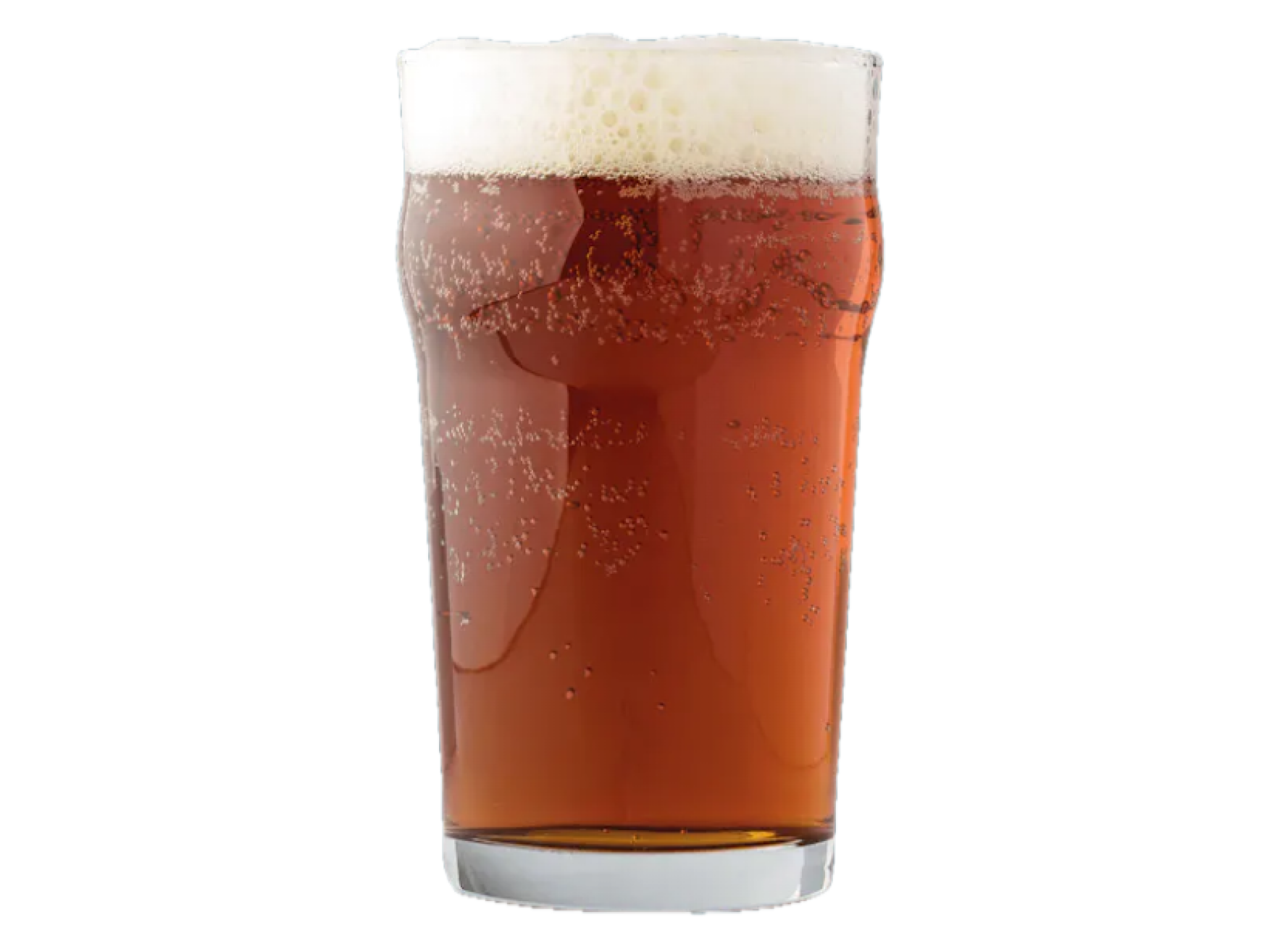
17g
Carbs
Ale (5%)
Pint
Carbs = 17g / Cals = 239
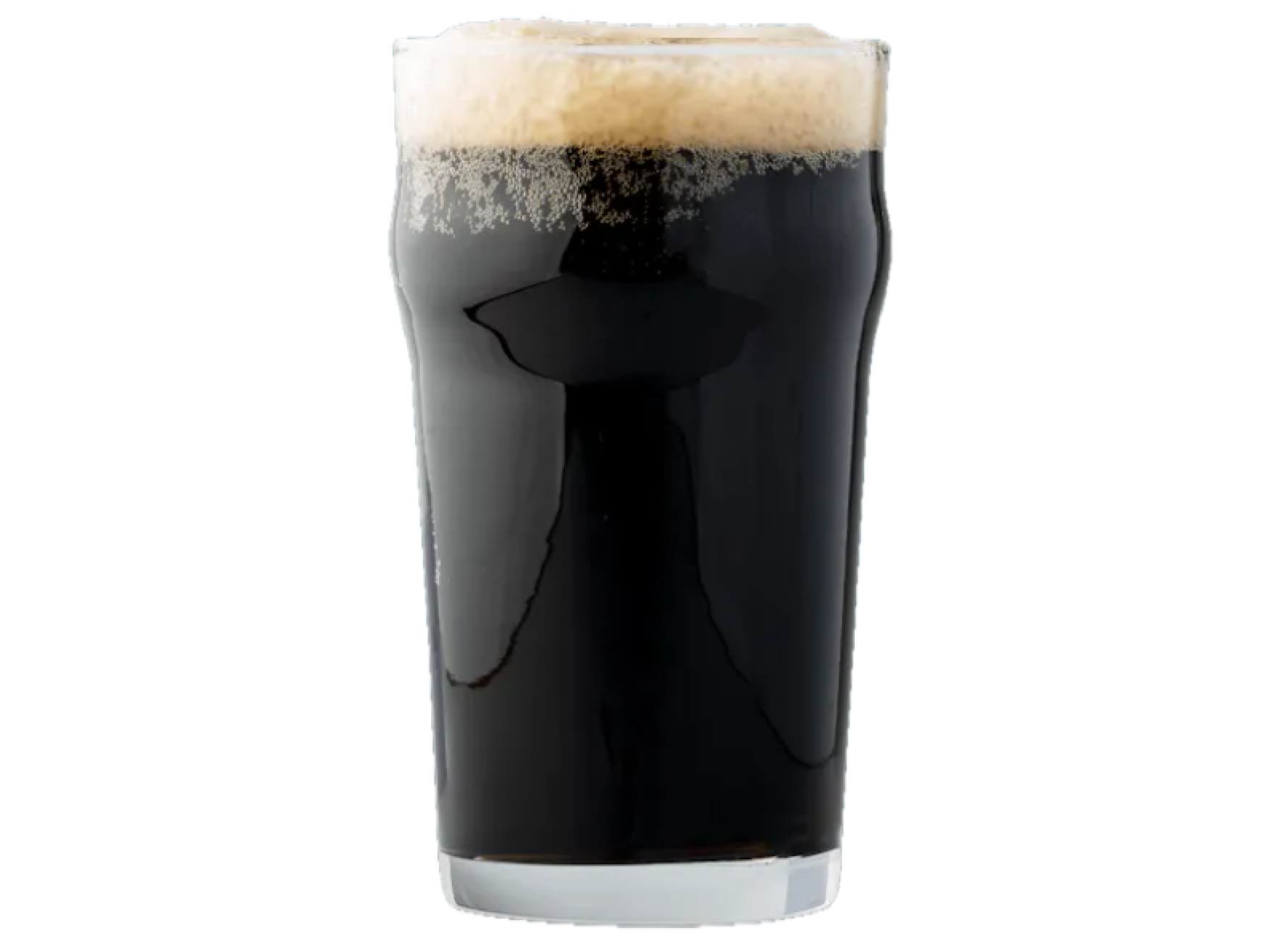
18g
Carbs
Stout (5%)
Pint
Carbs = 18g / Cals = 250
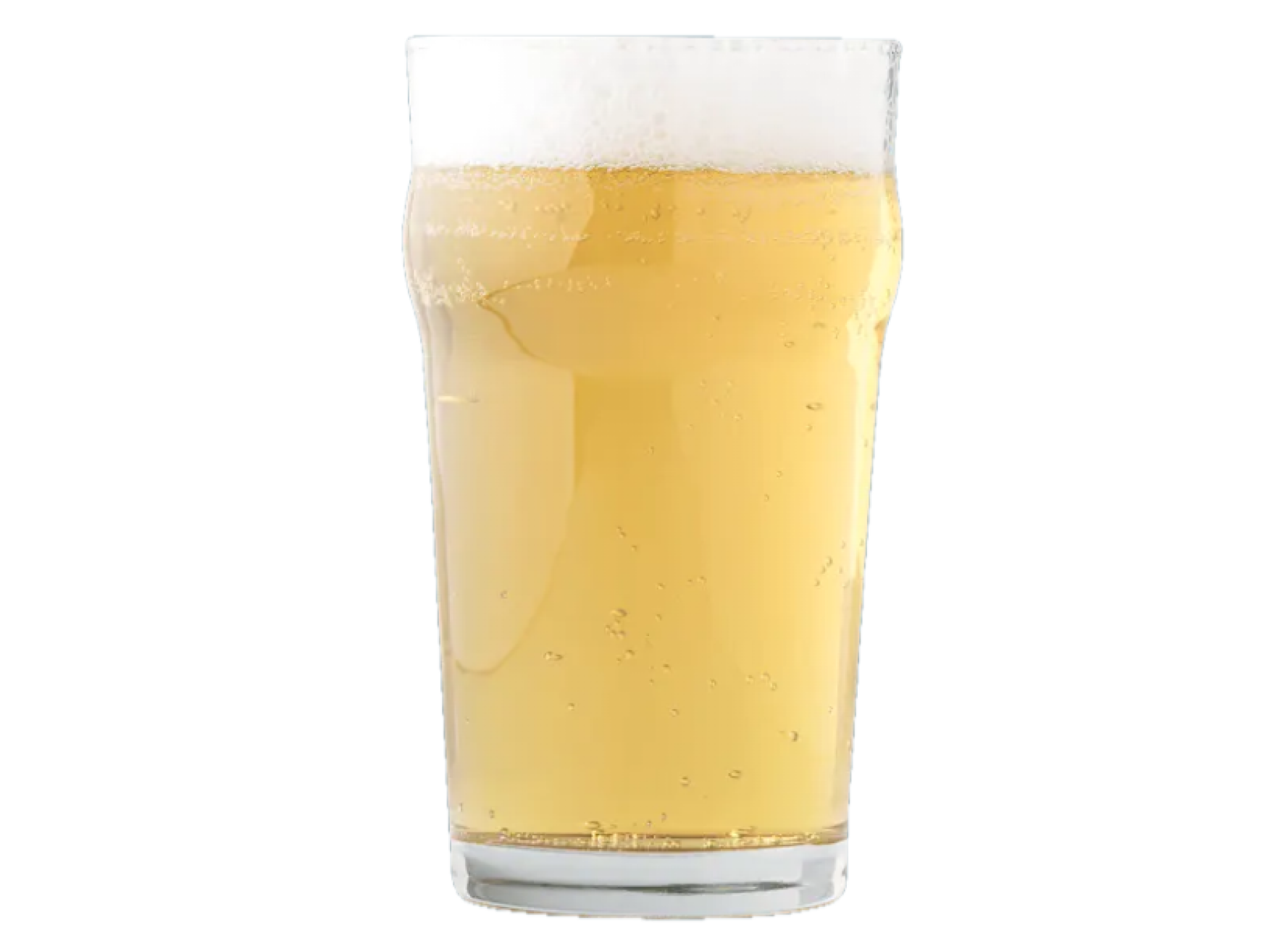
30g
Carbs
Lager Shandy
Pint
Carbs = 30g / Cals = 142
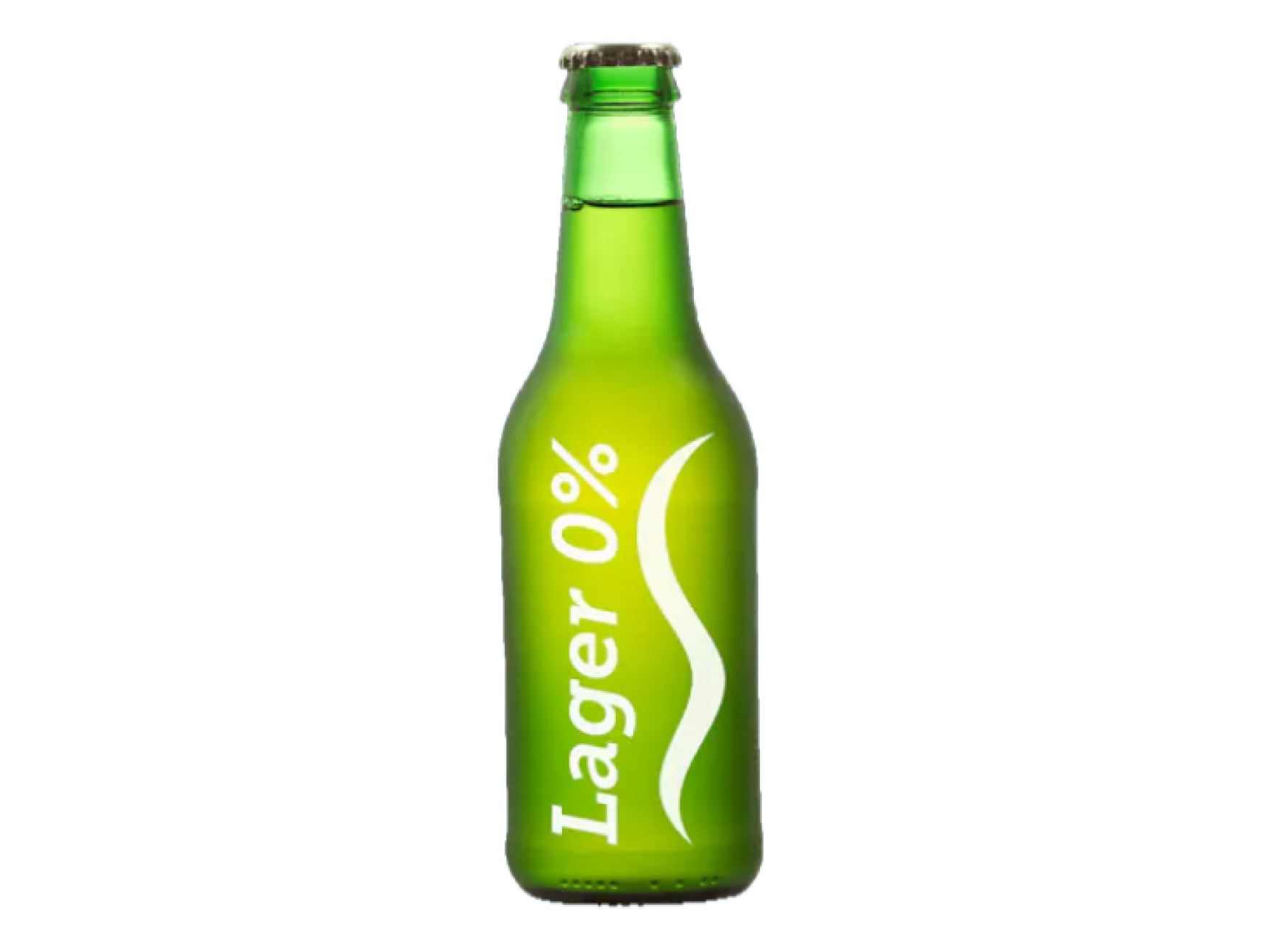
20g
Carbs
Non-alcoholic Lager
330ml bottle
Carbs = 13g / Cals = 58

12g
Carbs
Lager (4%)
Pint
Carbs = 12g / Cals = 208
Carbs in wine
Top takeaway: Dry wines and sparkling wines are usually very low in carbs. Sweet wines should be counted.
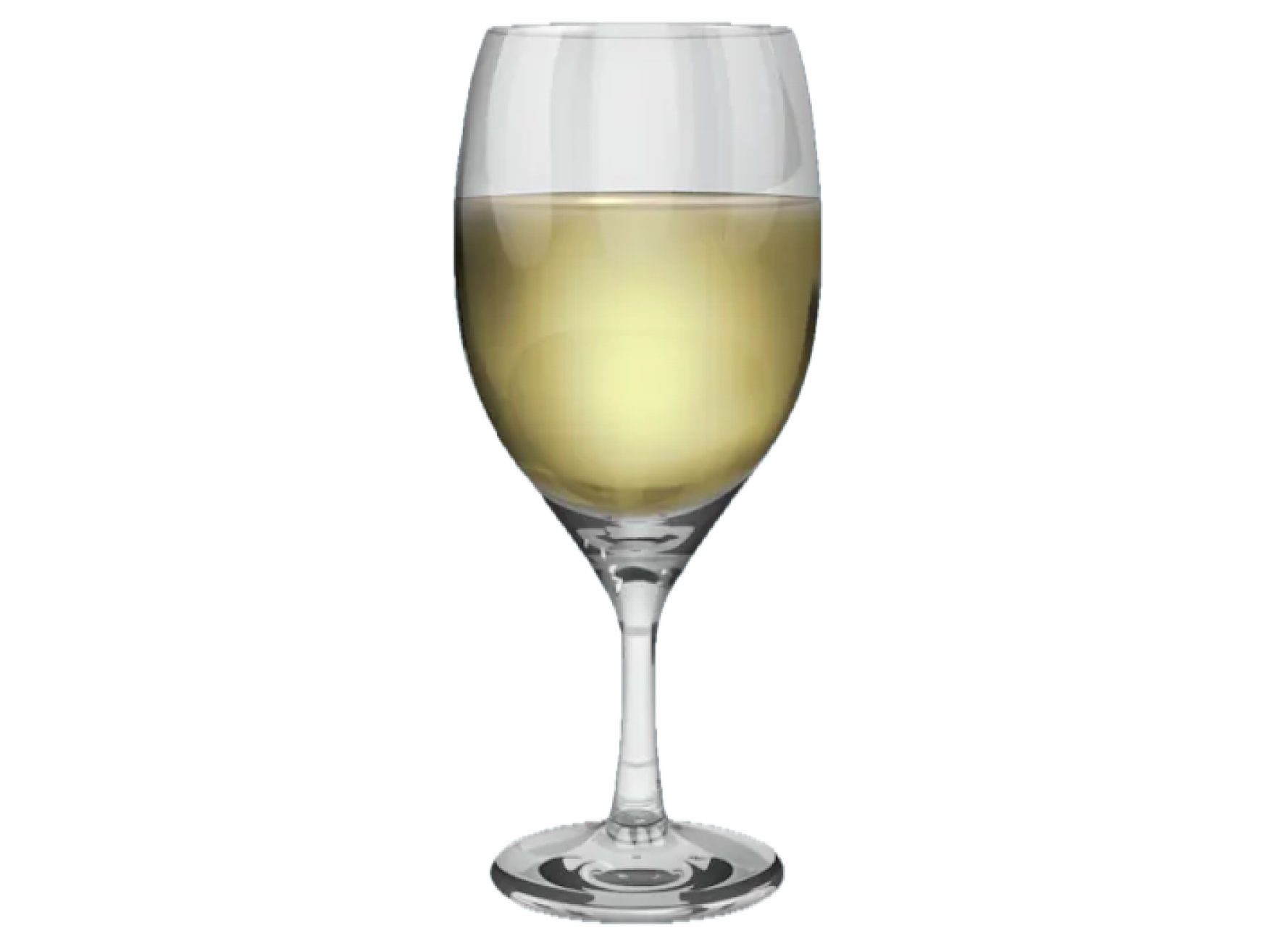
1g
Carbs
Dry White Wine
175ml (medium glass)
Carbs = 1g / Cals = 131
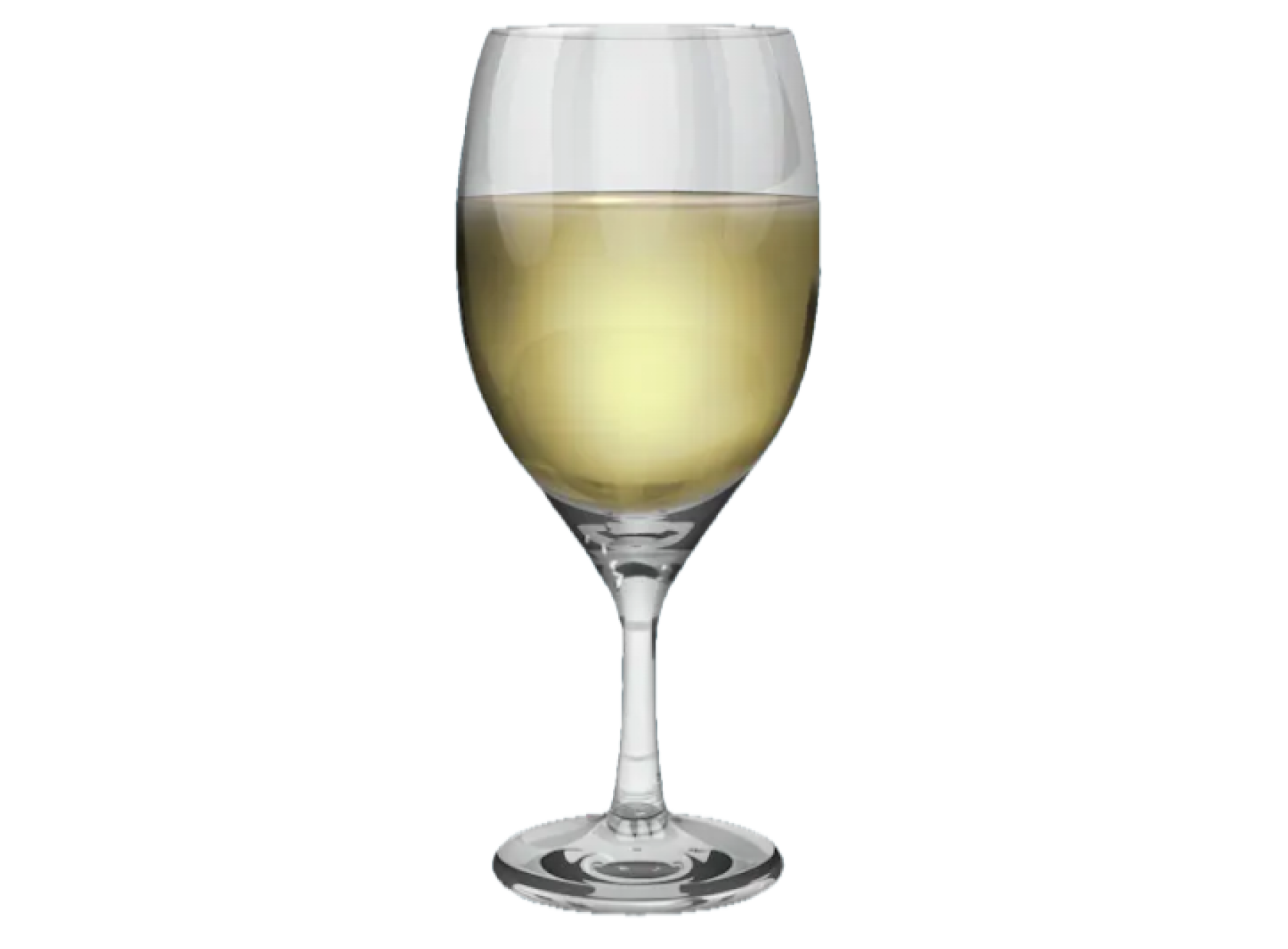
5g
Carbs
Medium White Wine
175ml (medium glass)
Carbs = 5g / Cals = 131
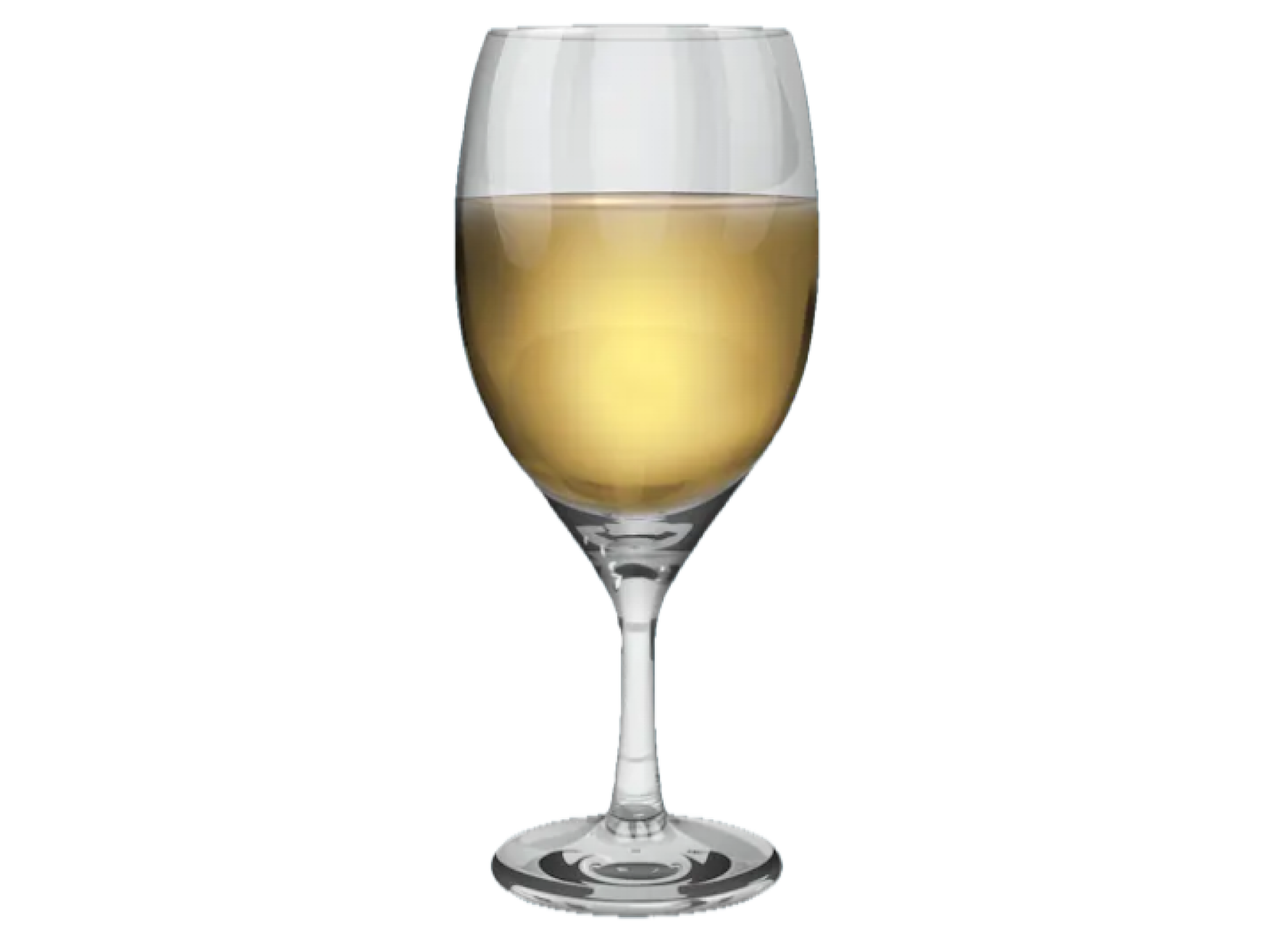
10g
Carbs
Sweet White Wine
175ml (medium glass)
Carbs = 10g / Cals = 165
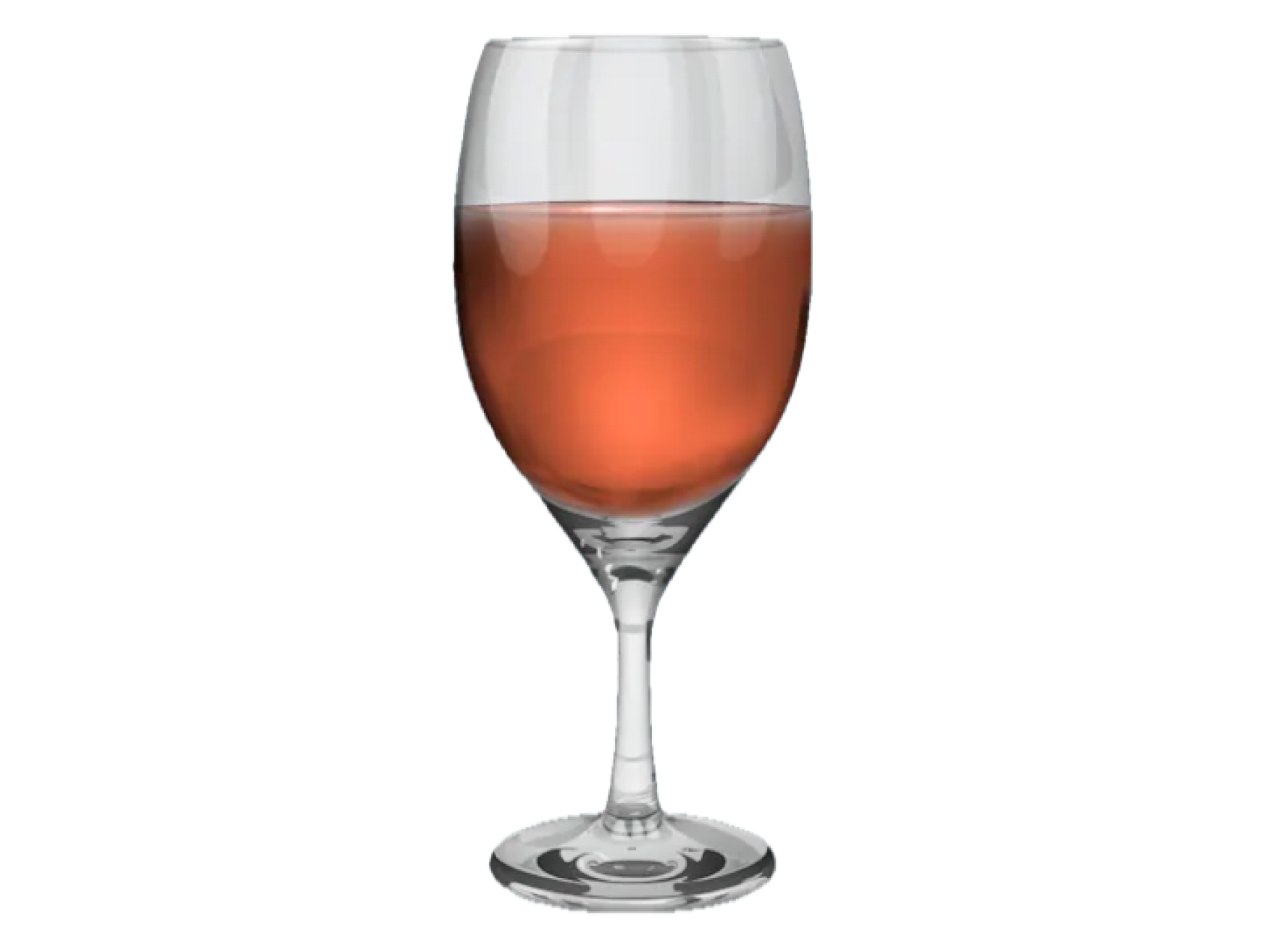
4g
Carbs
Rosé Wine
175ml (medium glass)
Carbs = 4g / Cals = 138
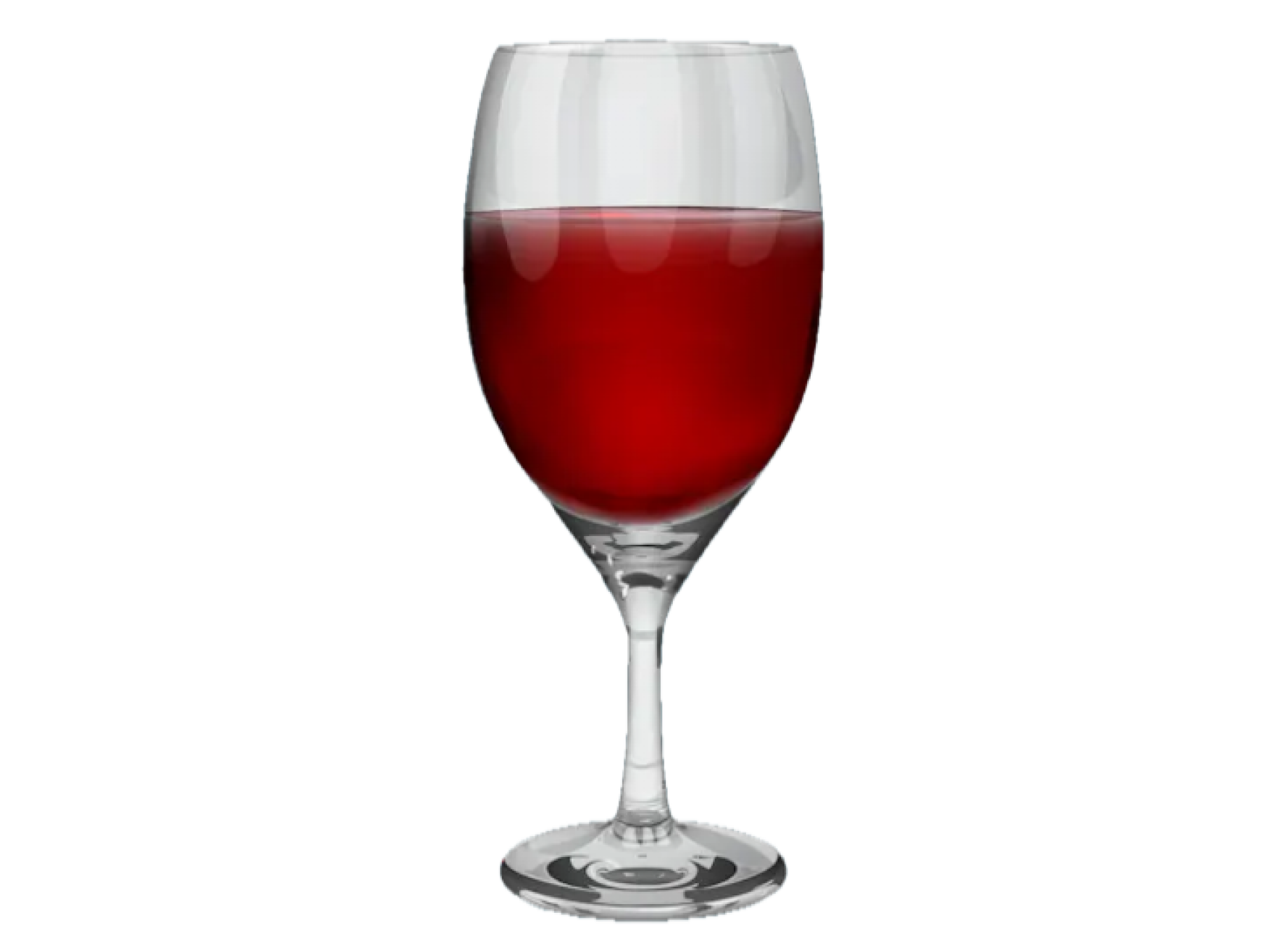
0g
Carbs
Red Wine
175ml (medium glass)
Carbs = 0g / Cals = 133
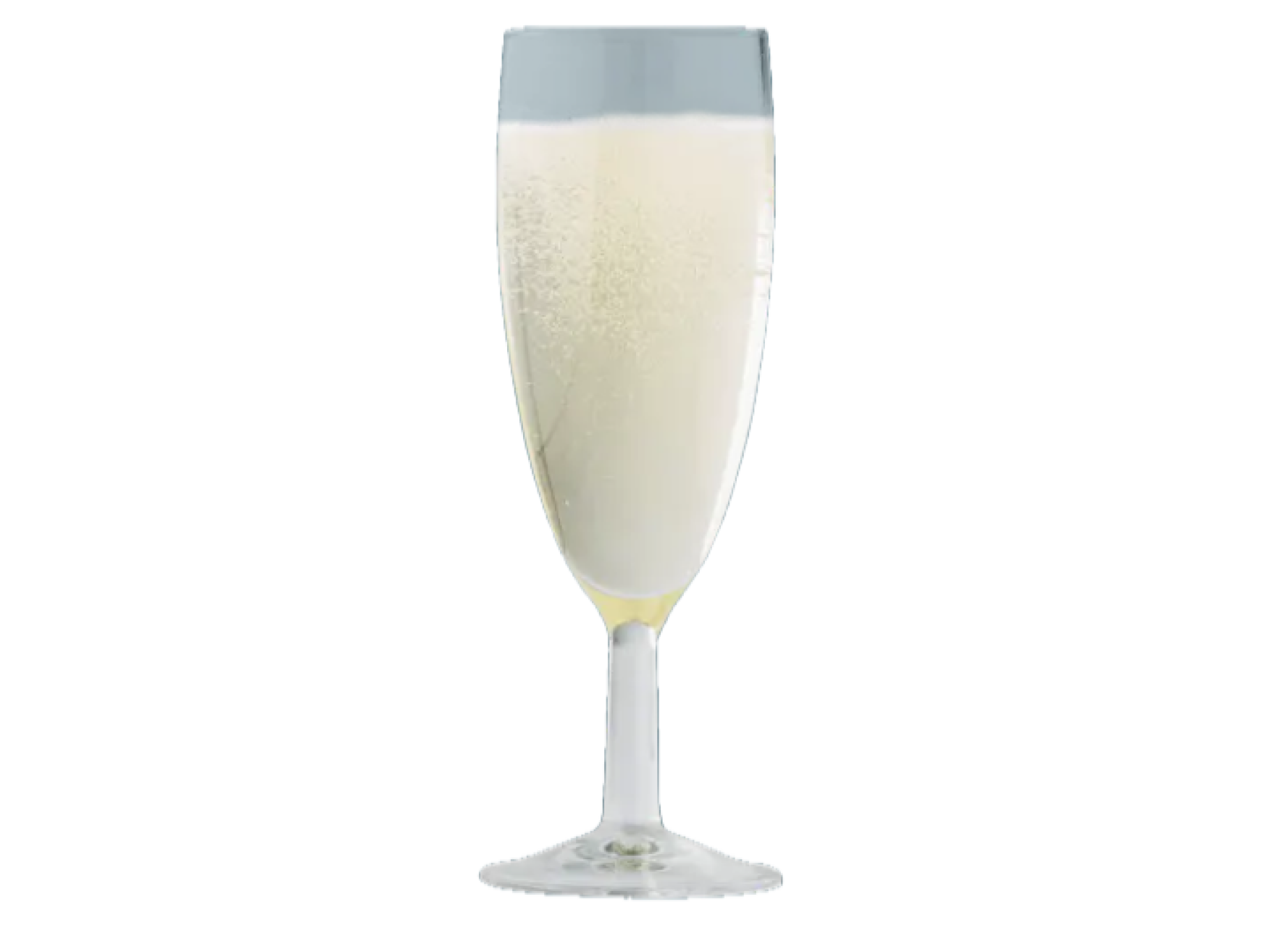
2g
Carbs
Prosecco
125ml
Carbs = 2g / Cals = 84
Carbs in fortified wines (e.g. Sherry or Port)
Top takeaway: These are typically served in small measures but contain significantly more sugar and alcohol per ml than standard wine.
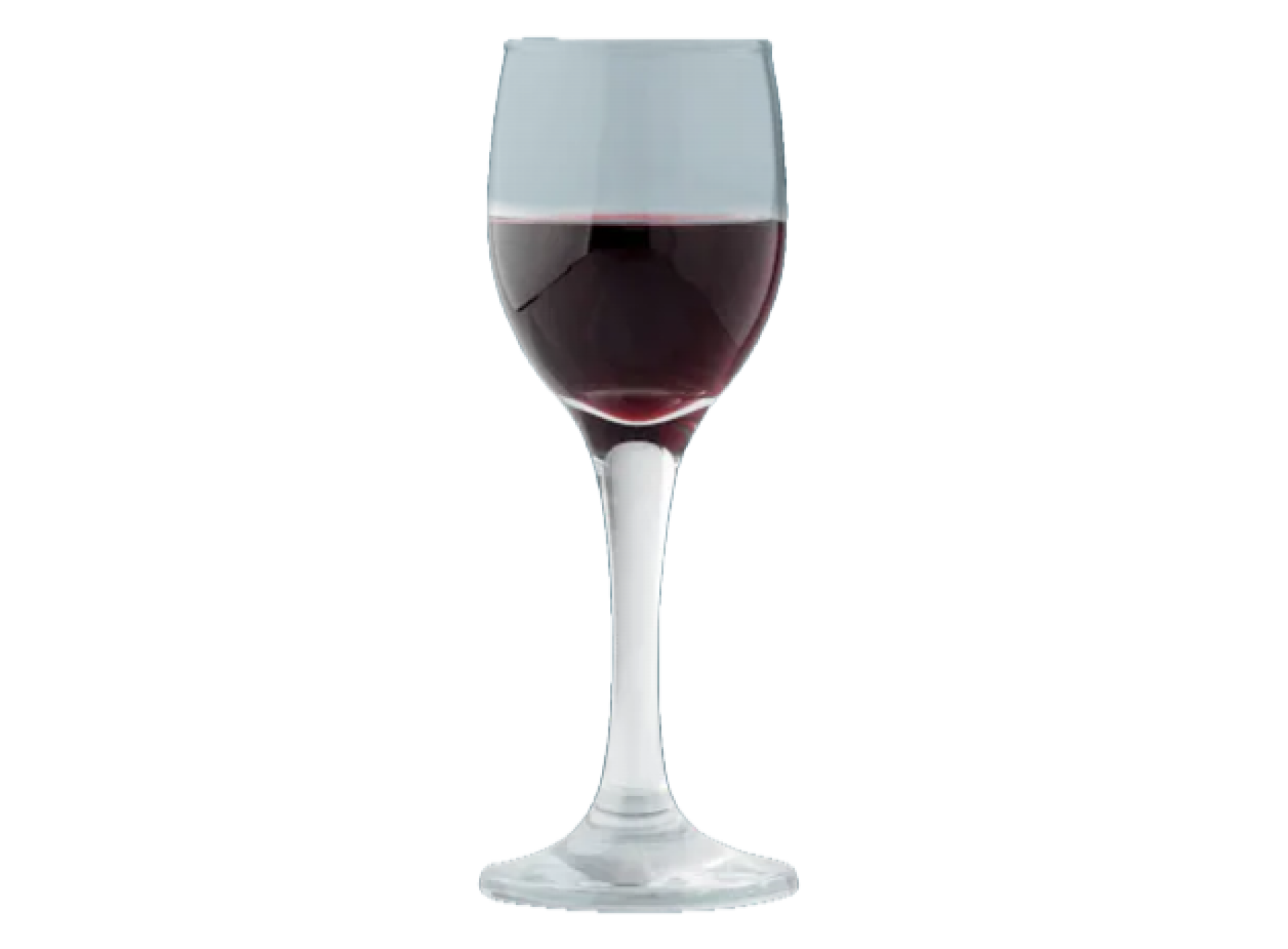
6g
Carbs
Port
50ml
Carbs = 6g / Cals = 79
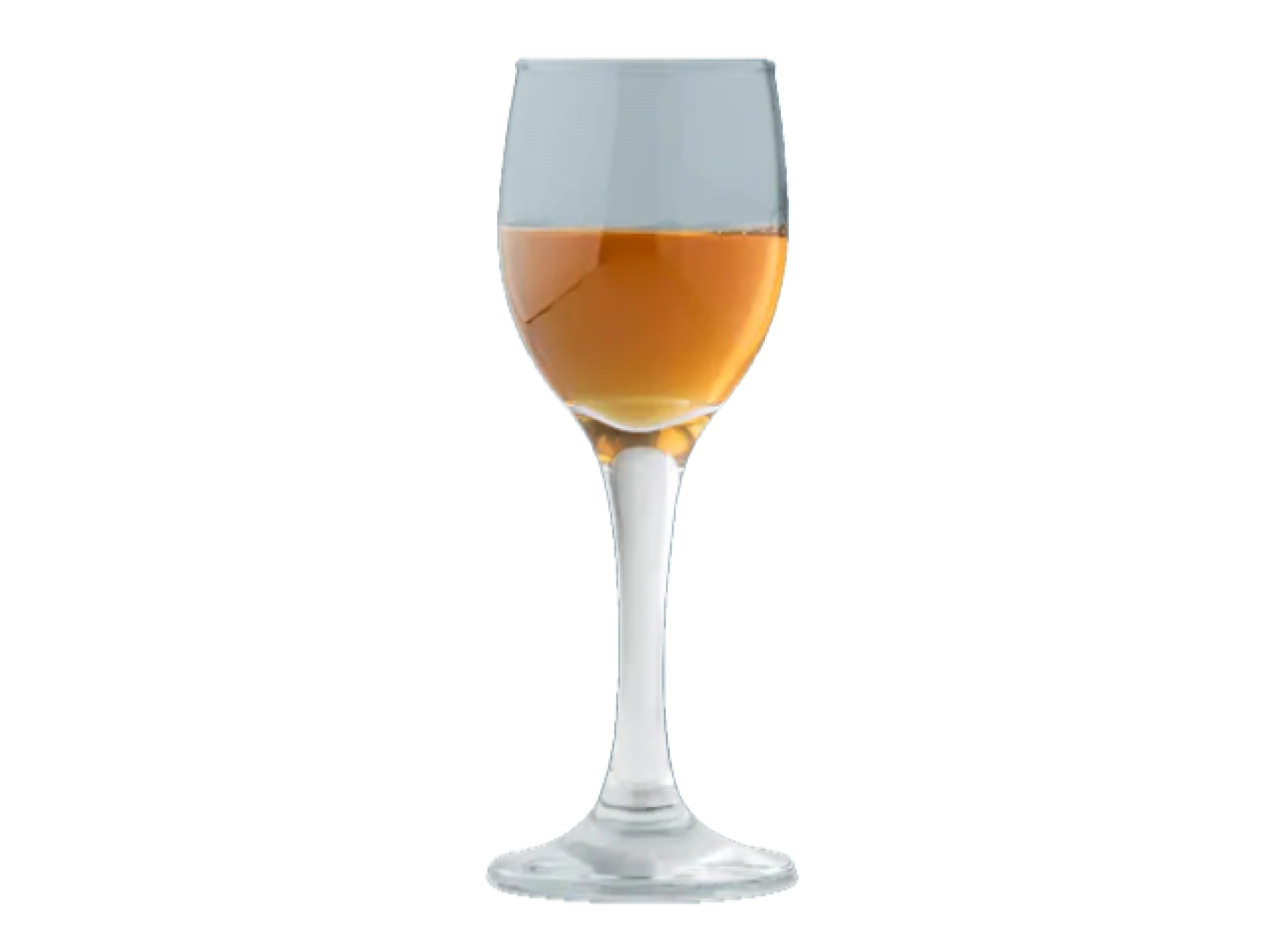
3g
Carbs
Sherry
50ml
Carbs = 3g / Cals = 58
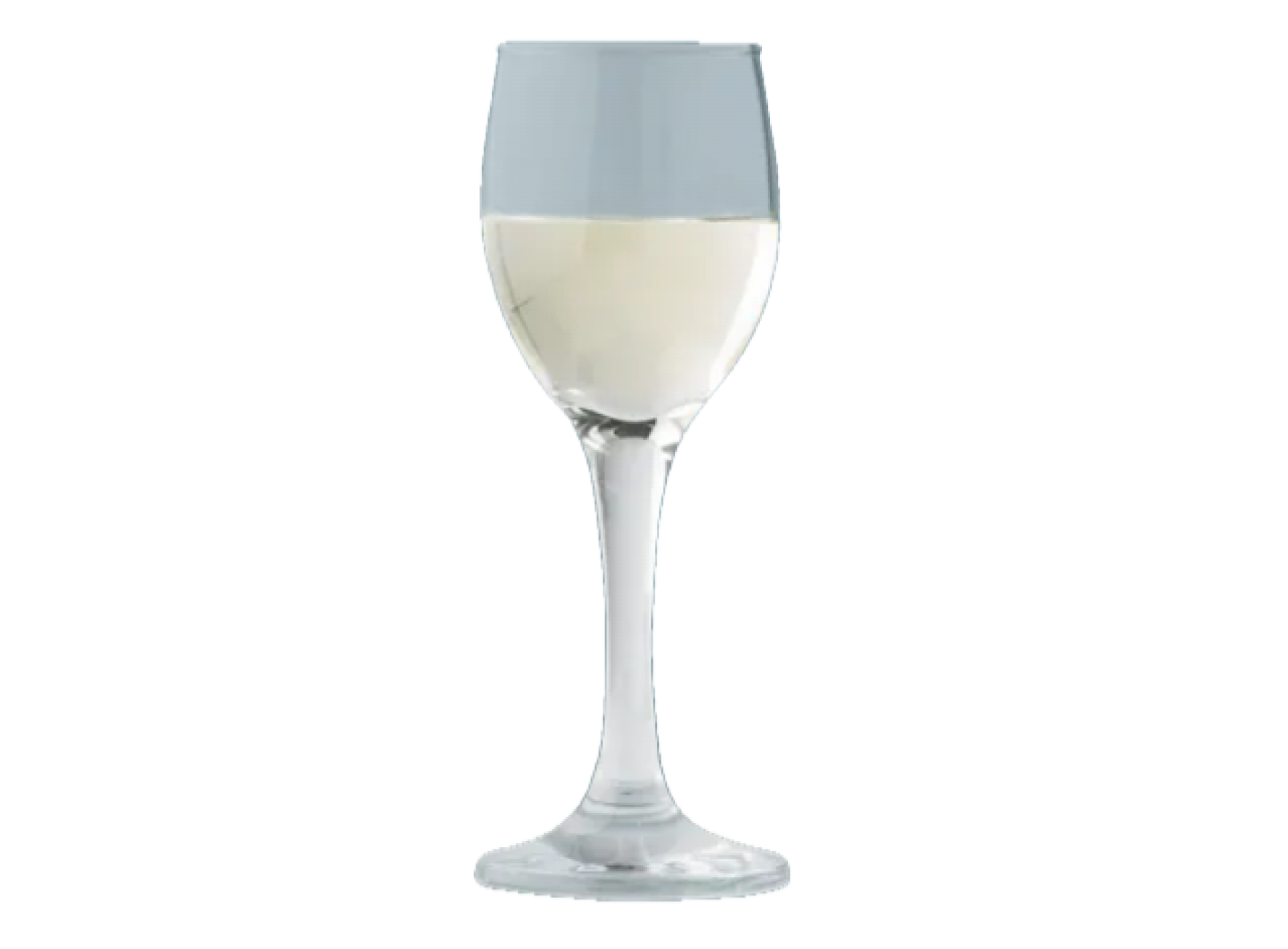
8g
Carbs
Sweet Vermouth
50ml
Carbs = 8g / Cals = 76
Carbs in vodka, gin, other spirits & mixers
Top takeaway: Spirits are carb-free on their own, but mixers make a big difference. Choosing the right mixer can help you reduce carbs in alcohol.
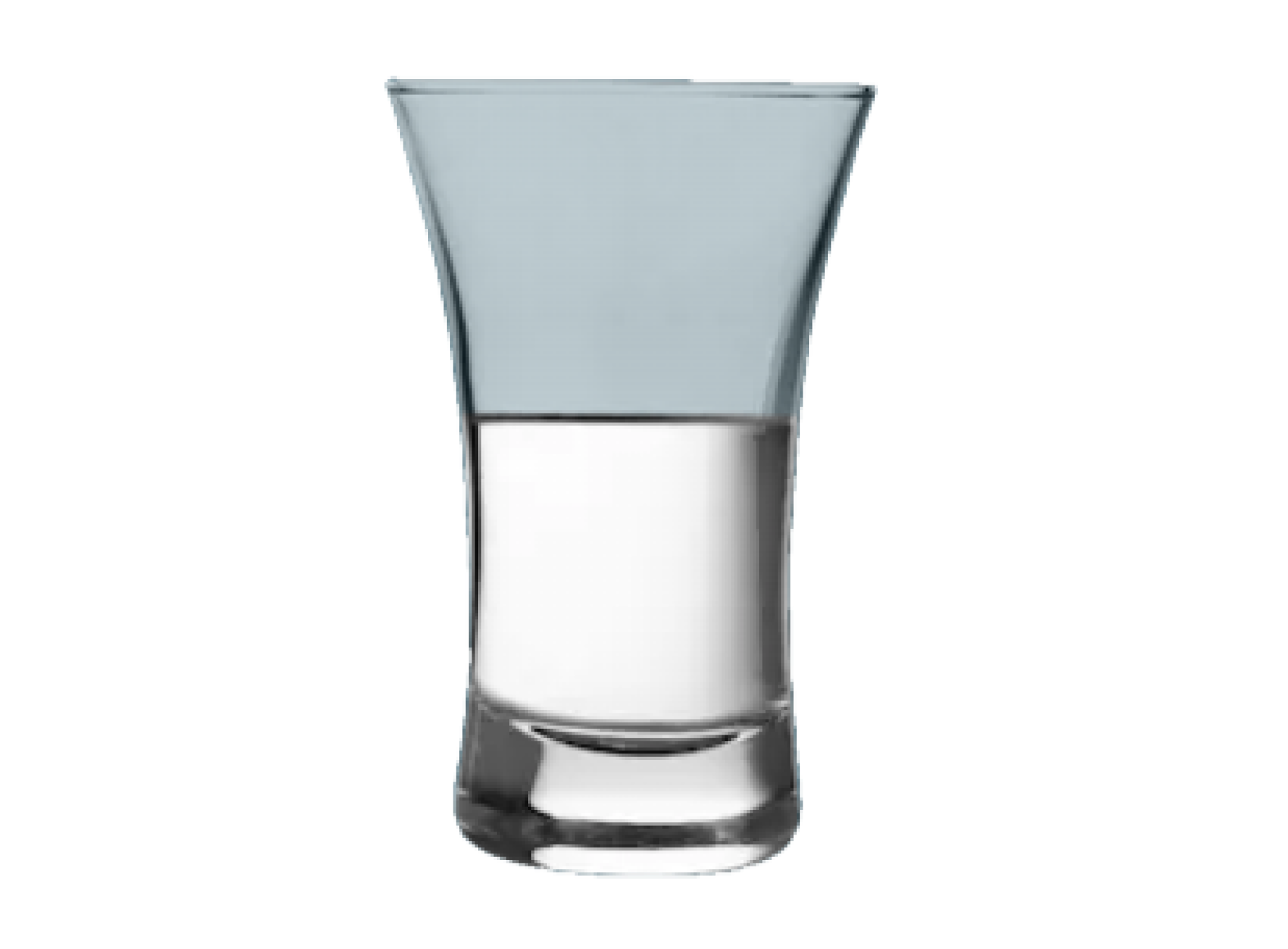
0g
Carbs
Vodka
25ml (single)
Carbs = 0g / Cals = 25

0g
Carbs
Gin
25ml (single)
Carbs = 0g / Cals = 56
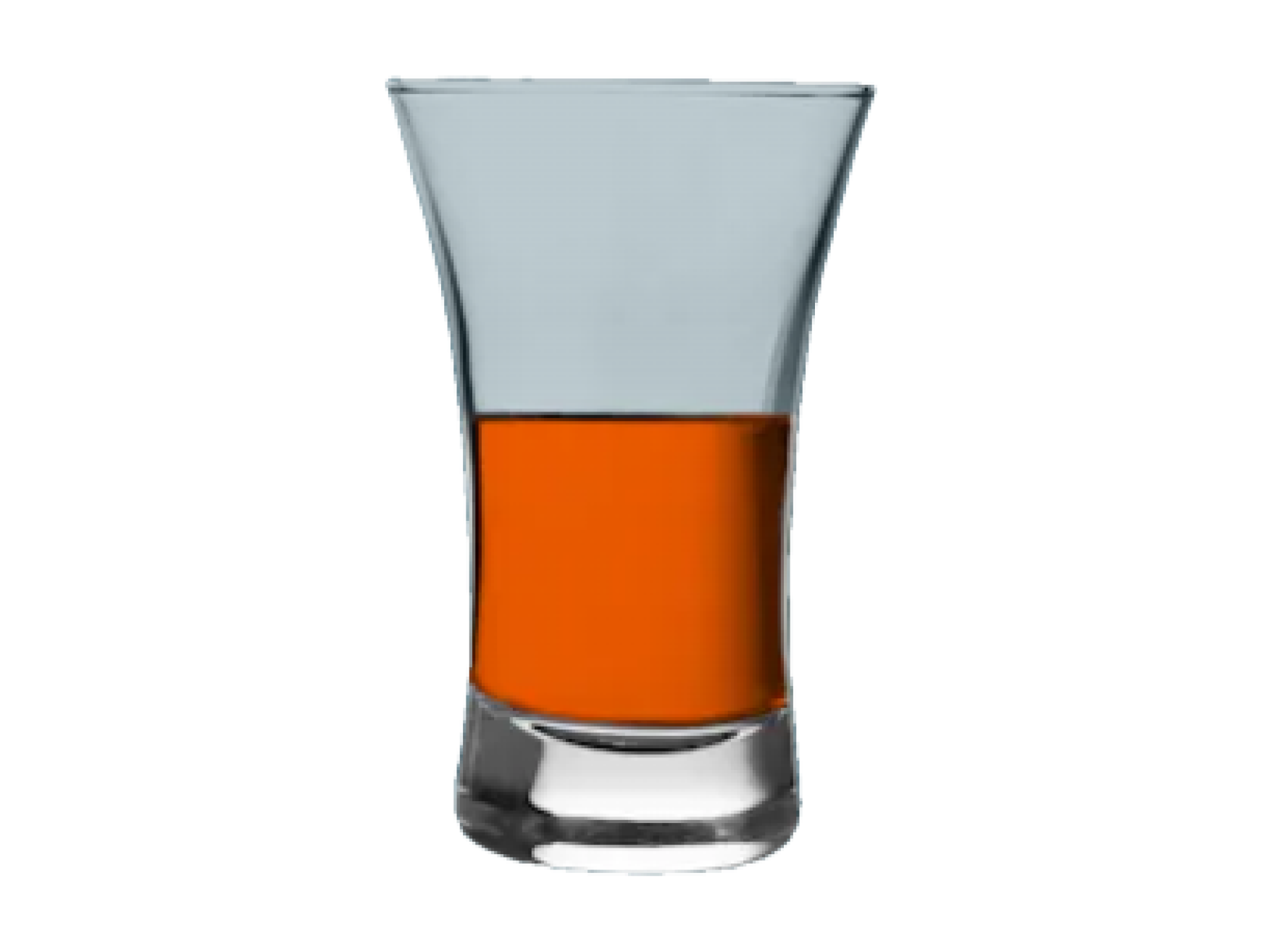
0g
Carbs
Dark Rum
25ml (single)
Carbs = 0g / Cals = 56
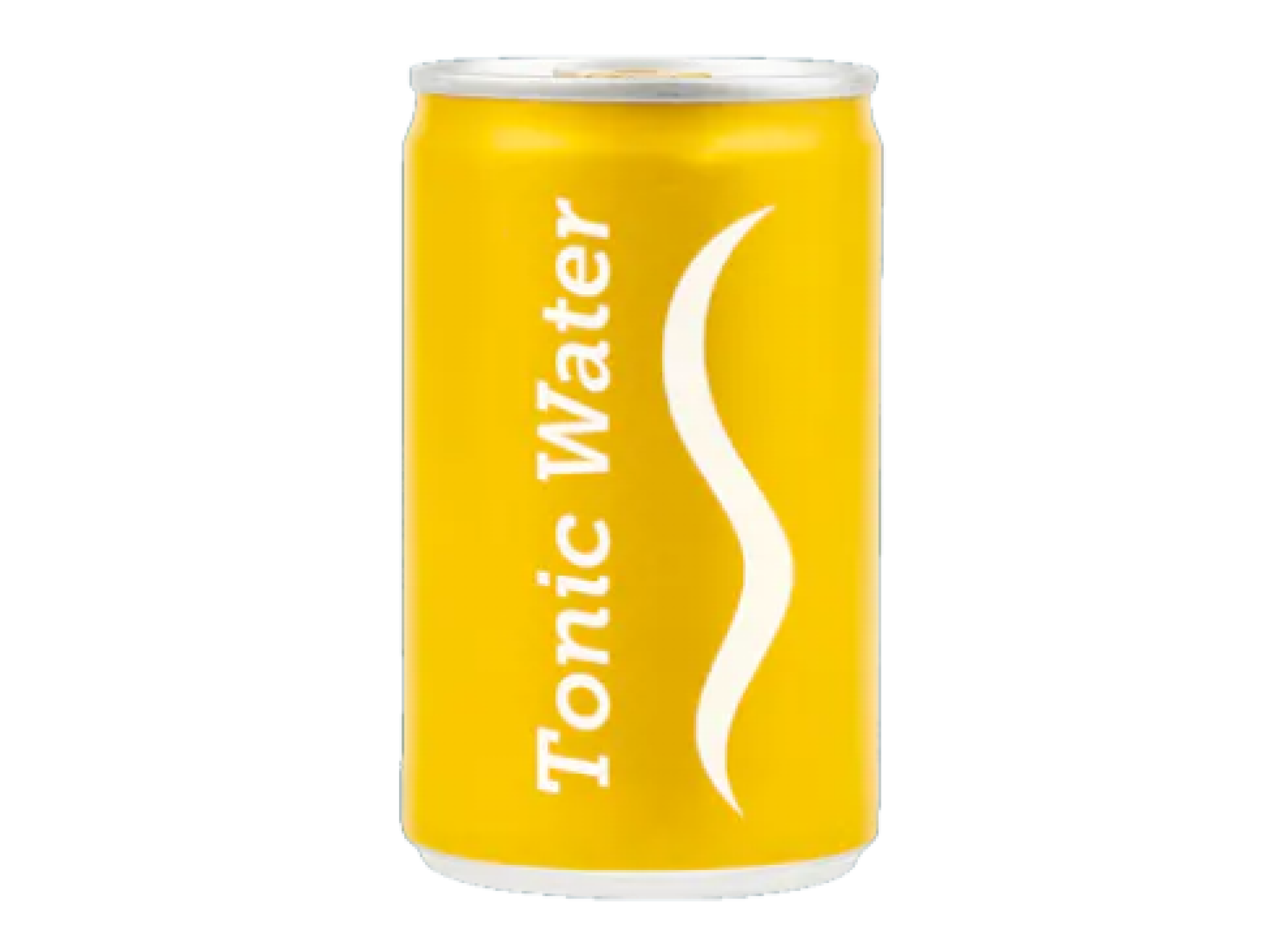
9g
Carbs
Tonic Water
150ml (mixer can)
Carbs = 9g / Cals = 33
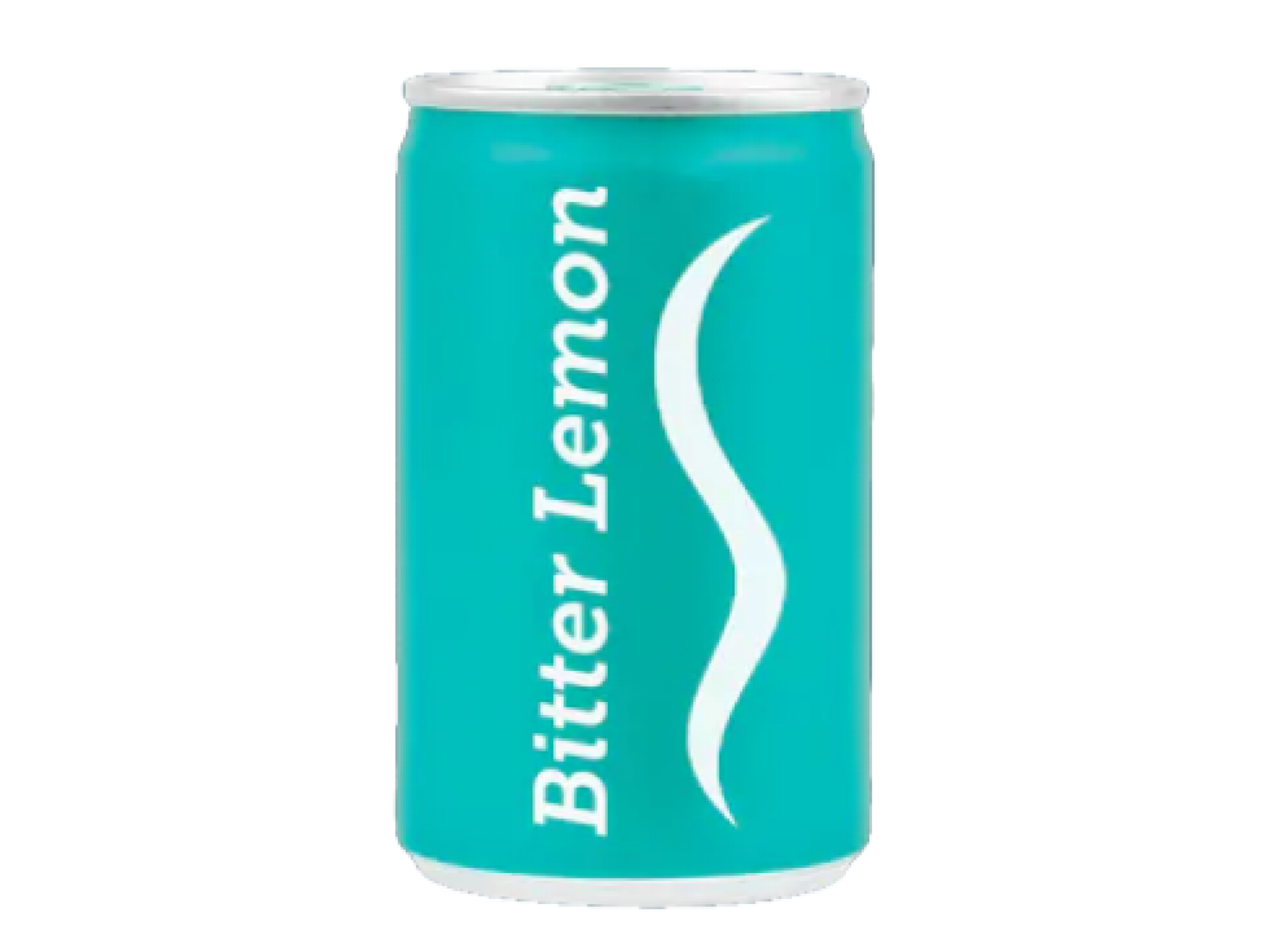
6g
Carbs
Bitter Lemon
150ml (mixer can)
Carbs = 6g / Cals = 28
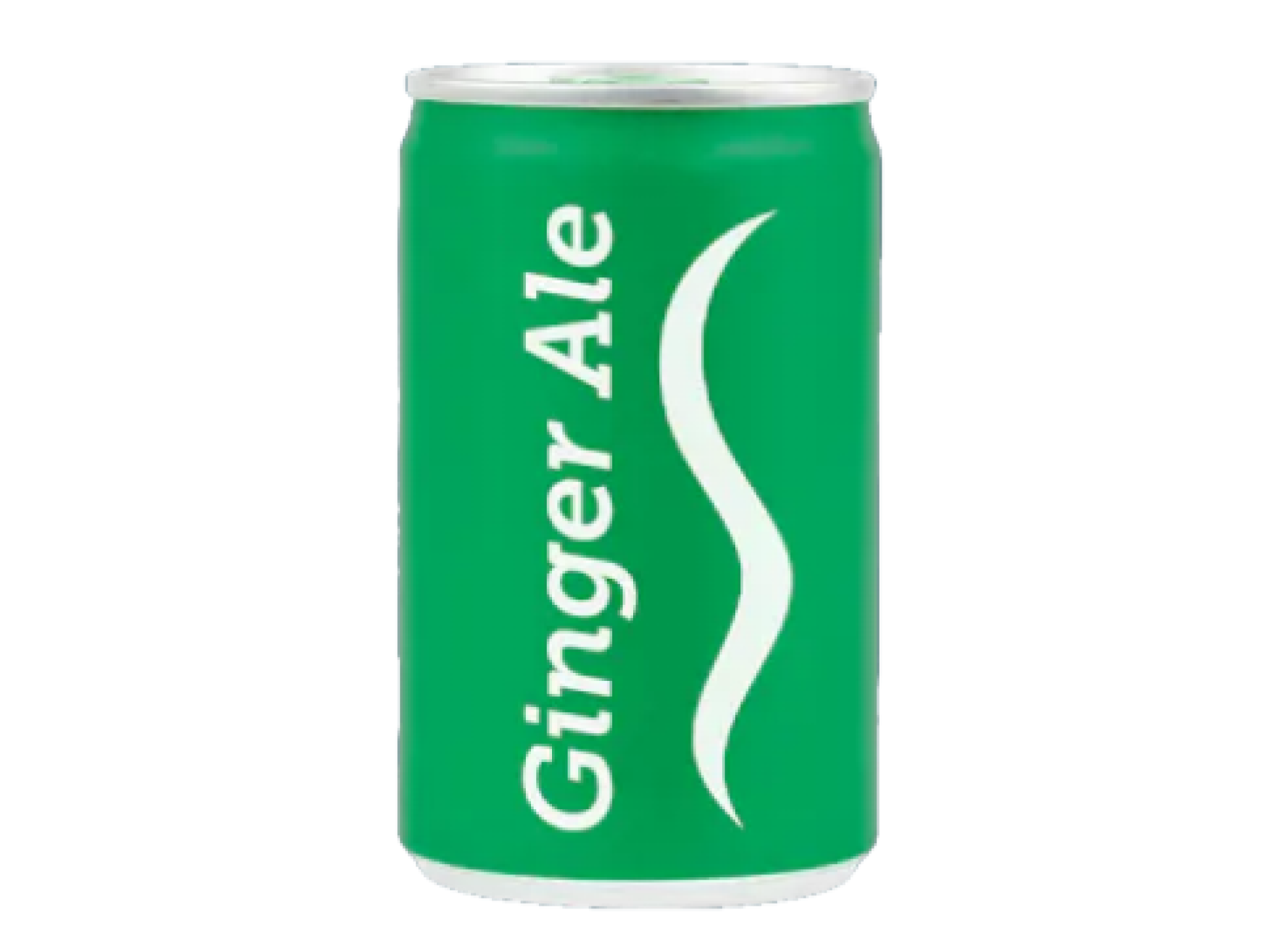
6g
Carbs
Ginger Ale
150ml (mixer can)
Carbs = 6g / Cals = 23
Carbs in liqueurs (e.g. Baileys, Amaretto, Kahlúa)
Top takeaway: Liqueurs, by their nature, are usually creamy and/or sweet and high in sugar. Because of this, they are best enjoyed in small amounts when you’re trying to manage your carb intake.
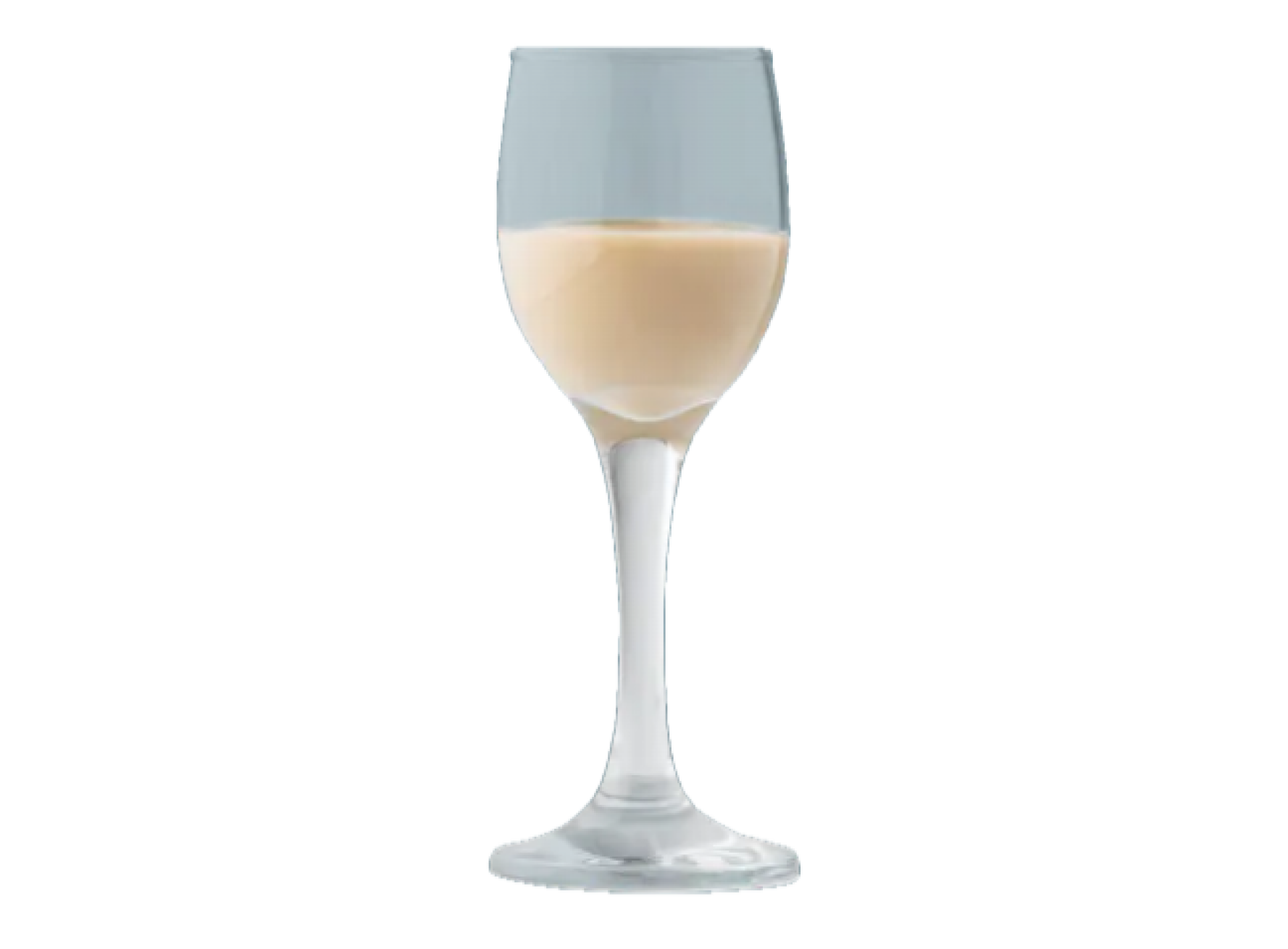
11g
Carbs
Irish Cream / Baileys
50ml
Carbs = 11g / Cals = 153
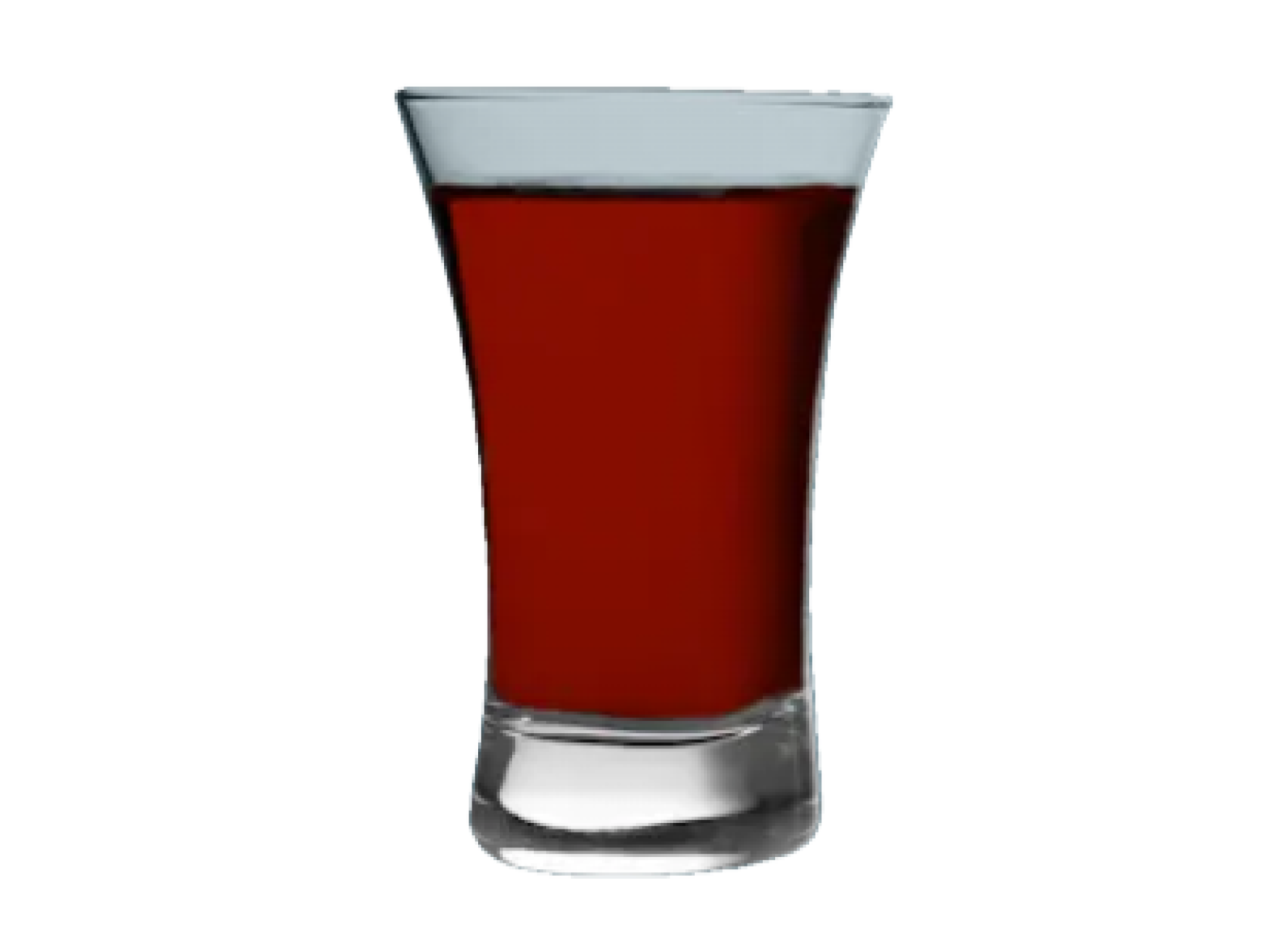
16g
Carbs
Sweet Liqueur
50ml
Carbs = 16g / Cals = 128
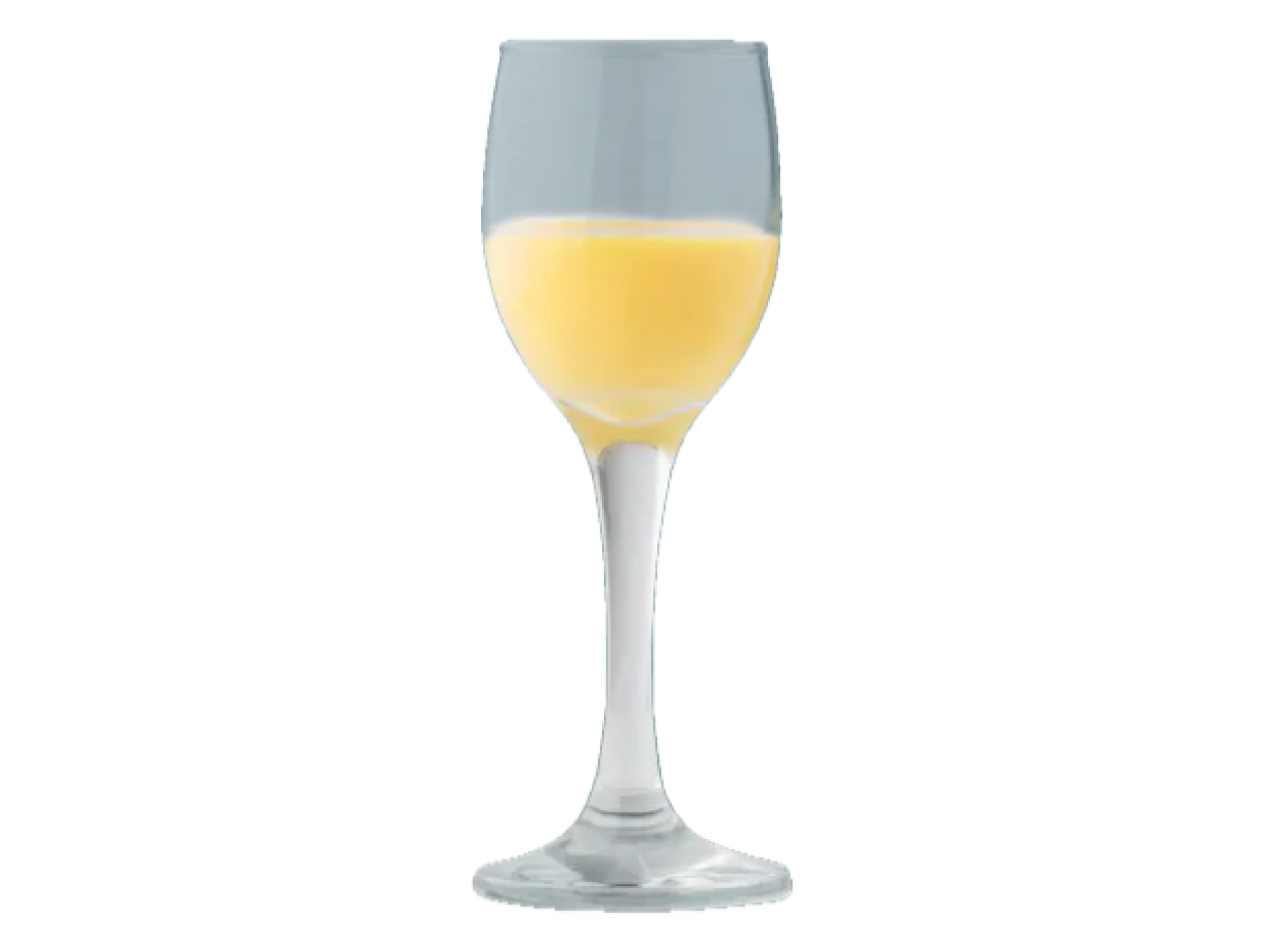
14g
Carbs
Advocaat
50ml
Carbs = 14g / Cals = 130
Carbs in cider
Top takeaway: Cider is one of the highest-carb alcoholic drinks, especially sweetened and flavoured versions.
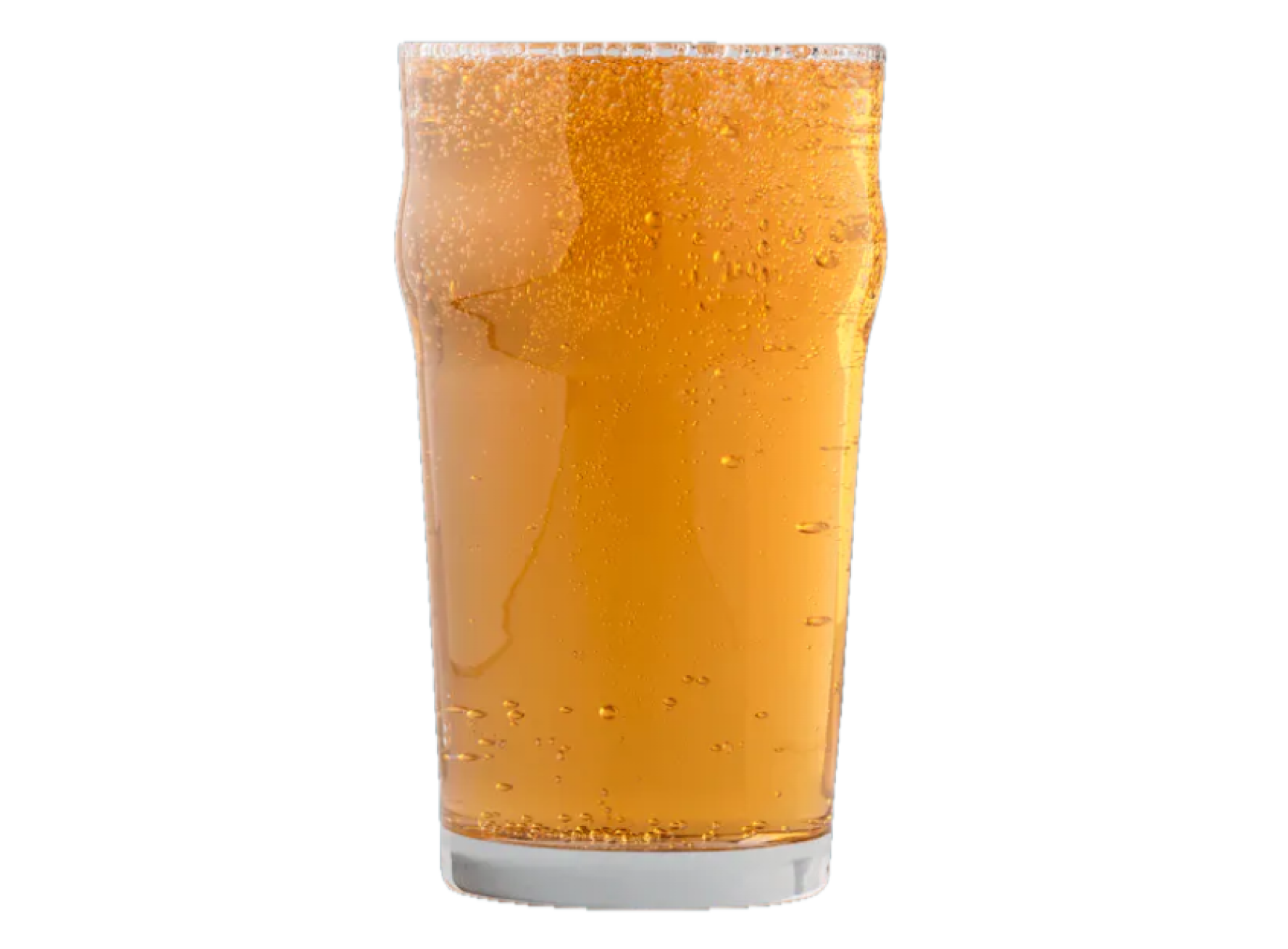
15g
Carbs
Dry Cider (5%)
Pint
Carbs = 15g / Cals = 204

24g
Carbs
Sweet Cider (5%)
Pint
Carbs = 24g / Cals = 239

28g
Carbs
Pear Cider (5%)
Pint
Carbs = 28g / Cals = 261
Top tips for counting carbs in alcohol
✅ Choose dry over sweet
Dry wine, prosecco, and spirits with diet mixers are lower-carb alcohol choices.
✅ Watch the mixers
Tonic, cola and juices can add 10-15g carbs or more. Use diet versions or soda water.
✅ Stick to small measures
Sweet wines and liqueurs are high in sugar; carbs can add up quickly. Stick to single servings and make sure you count them.
✅ Don’t take insulin to cover alcohol
Unless you’ve had specific training from your diabetes team, do not give insulin for alcohol itself. You may need to reduce your insulin dose and/or eat a bedtime snack to prevent hypos.
✅ Carry hypo treatments
Always have something fast-acting on you in case of a low, even hours after drinking.
✅ Plan ahead and don’t skip meals
Have a balanced meal before drinking and consider if you need a carb-containing snack before bed, especially after more than one drink.

2g
Carbs
Champagne
125ml
Carbs = 2g / Cals = 95
Carbs in alcohol and blood sugar: A balancing act
You don’t have to cut out alcohol altogether, but if you have diabetes, it’s essential to understand both the immediate and delayed effects alcohol can have on your blood sugar.
Many alcohol-related hypos happen overnight, especially after exercise or on an empty stomach. Always plan ahead, monitor your levels more closely, and speak to your diabetes team if you need guidance on safe drinking, insulin adjustments, or bedtime snacks.
Alcohol and carb counting don’t have to be a mystery. With the right information, you can enjoy social occasions, manage your blood glucose, and make informed choices that work for your lifestyle.
The Carbs & Cals app is packed with UK-specific alcohol data, including portion photos, carb values and alcohol units, helping you plan and stay in control.
For more information about alcohol and its effects, take a look at Drink Aware.
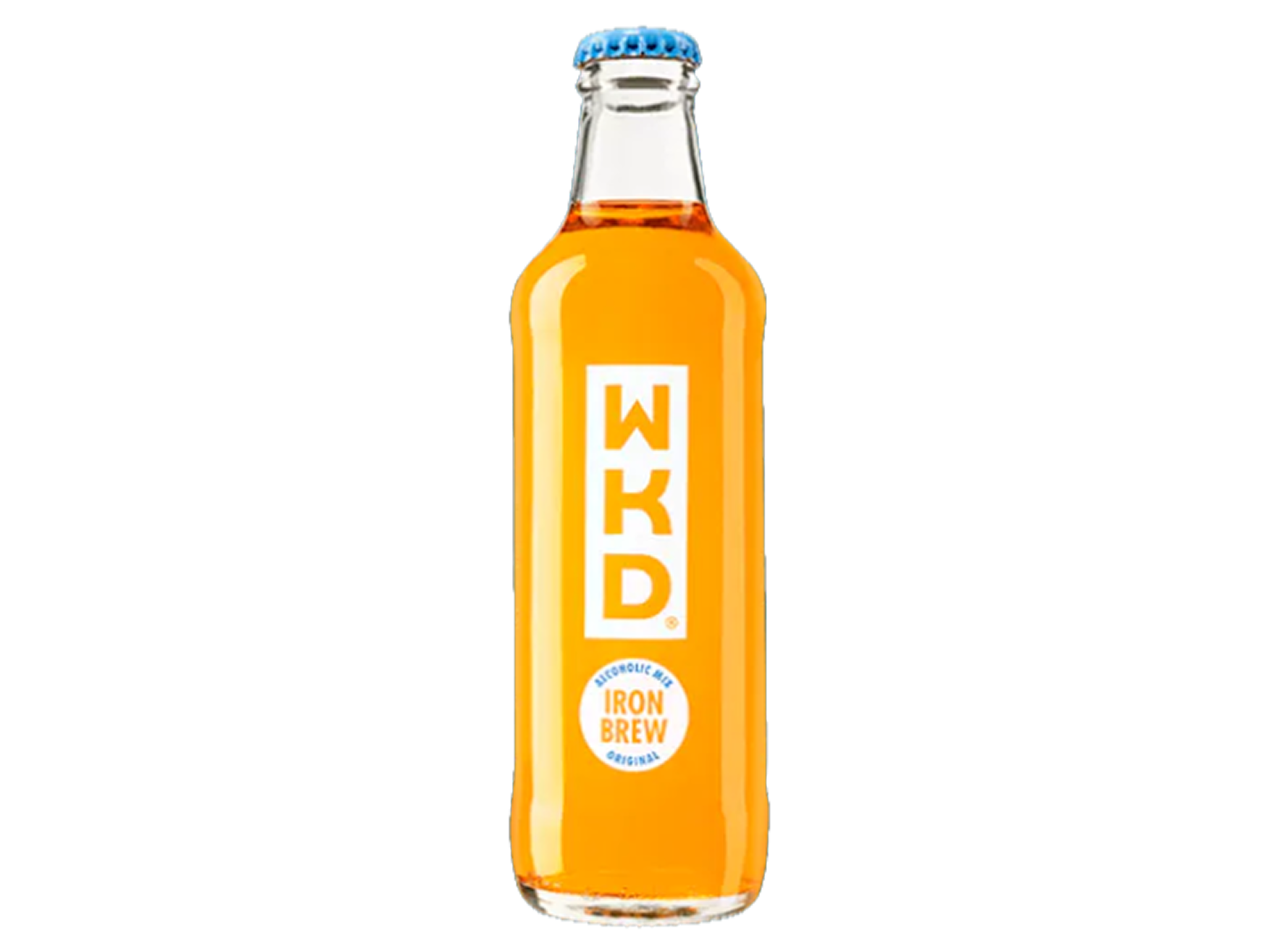
23g
Carbs
WKD (Iron Brew)
275ml bottle
Carbs = 23g / Cals = 151
Want to Learn More?
Grab a Copy of Carb & Calorie Counter
The multi-award-winning Carb & Calorie Counter book is your definitive, expert-approved guide to carb and calorie counting.
- Over 1700+ high-quality food photos
- Up to six portion sizes per food
- At-a-glance carbs and key nutrients
- The Original #1 Bestseller
With the “Carb-Counting Bible”, a single flick of the page is all you need to plan nutritious, carb-counted meals.
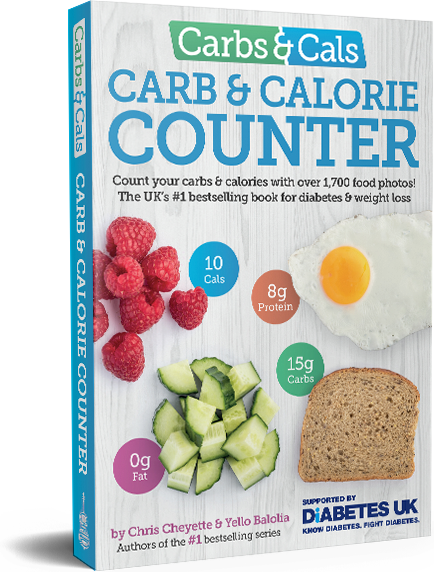
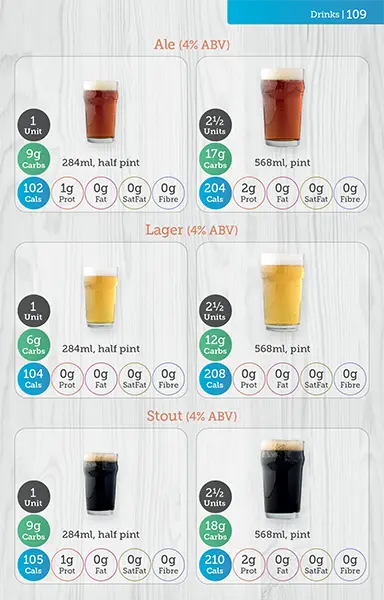
Contains a whole chapter with 30 photos of different types of alcohol!
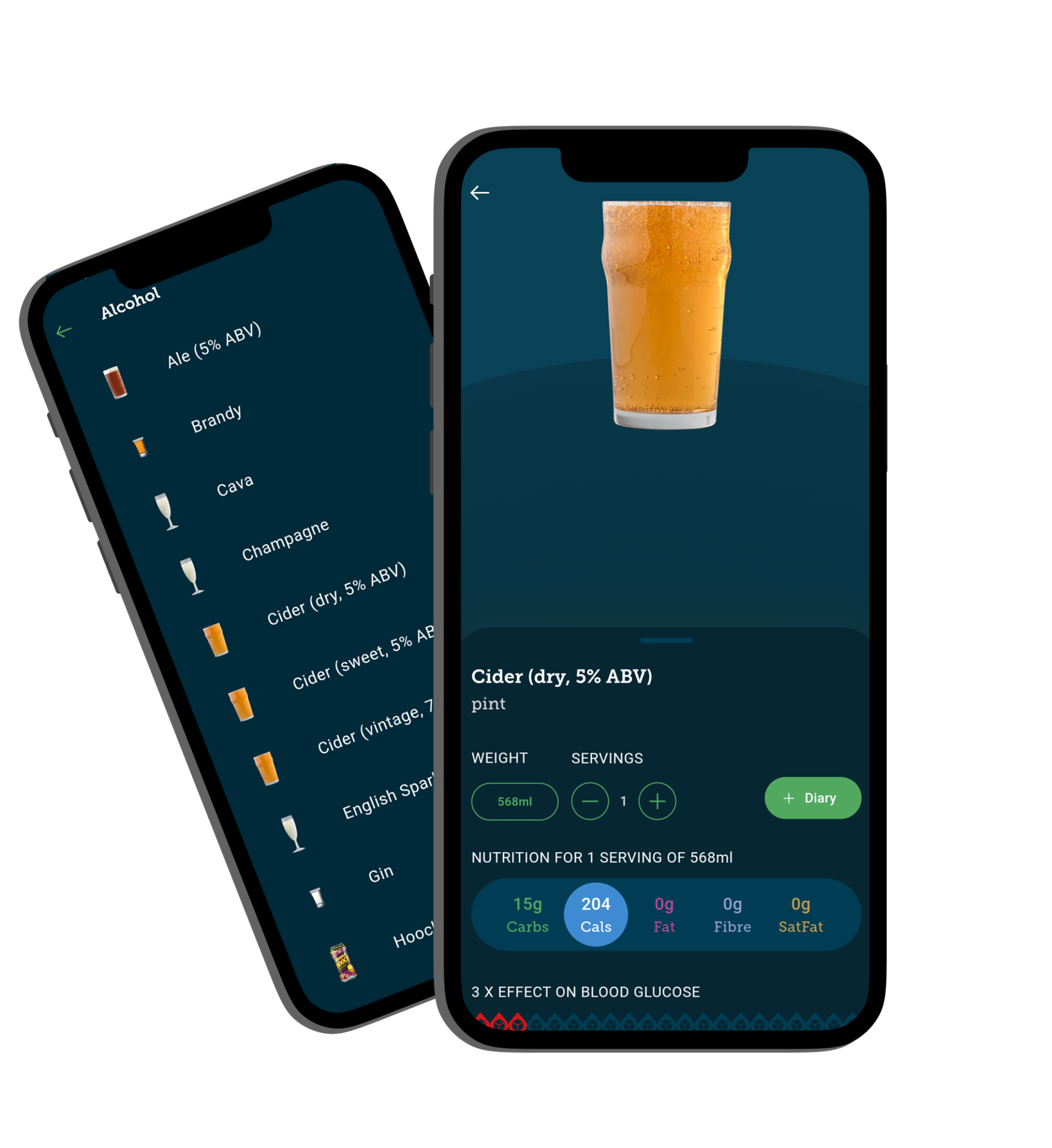
Sign up to the Carbs & Cals mailing list
Want to learn more about carb counting and the role of food in managing your health? Sign up to our mailing list!
